HOW TO DIVORCEPROOF YOUR MARRIAGE
PUT AWAY GUILT AND SHAME AND FORGIVE YOURSELF
SELF-LEADERSHIP THROUGH THE LIFE OF JESUS
PROPHECY IN THE CHURCH: HOW TO TEST IF IT’S TRUE
COGIC TO CELEBRATE 70 YEARS OF YOUTH MINISTRY
THE JEWISH ROOTS OF EASTER IS THE CHURCH KEY TO THE SUCCESS OF UK GOSPEL?
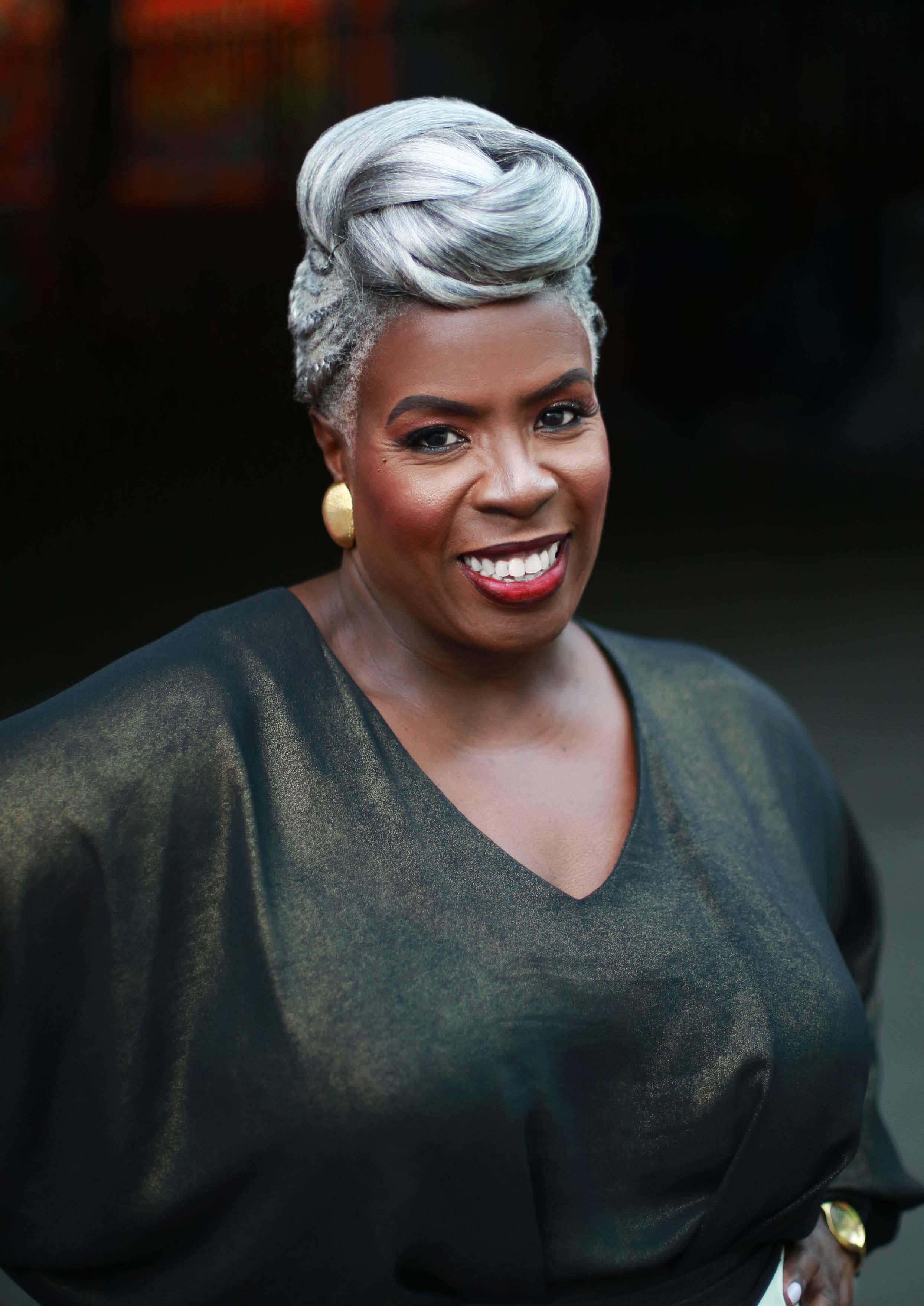
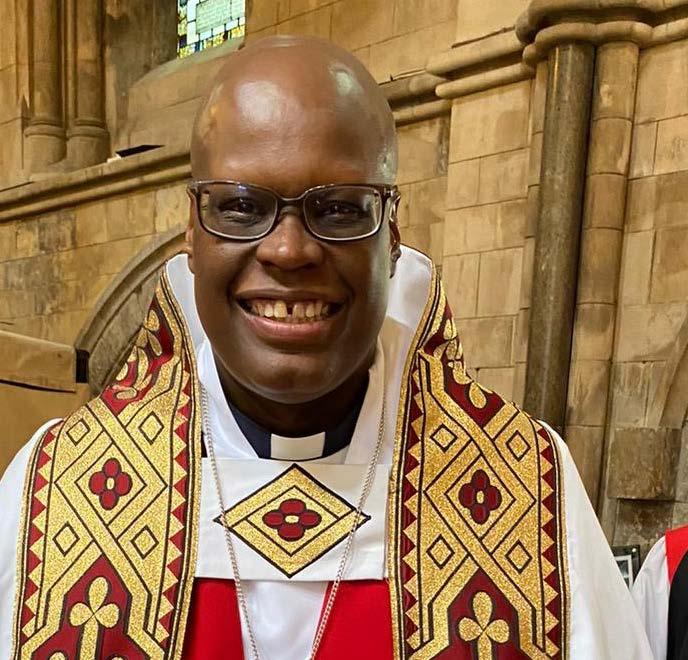
Karen Gibson
The Godmother of British Gospel
BLACKTHEUK’S AND CHRISTIANMULTI-ETHNICMAGAZINE £4.95 where sold
ISSUE 130
BISHOP MIKE ROYAL: THE LEADER PROMOTING CHURCH UNITY
LIFEWORDS LITTLE BOOKS
“
“... easy to relate to and poignant in their subject matter. They help me focus on what’s important in my everyday life and discard what is not.”
Clive Roberts

Introducing

Lifewords Little Brick of Little Books is a brand-new tool for ministries that need quality Bible-centred resources that people will read, re-read, and keep. It comes pre-loaded with 48 Little Books – eight each of the six titles in our popular range, including the brand-new Little Book of Joy. Once used, the brick can be re-filled via our online shop of resources (free, or for donation).
Lifewords Bible resources are great to read, easy to share, freely available, and supported by donations since 1888.
LIFEWORDS
www.lifewords.global
the Find out more at www.lifewords.global/littlebrick LITTLE BRICK OF LITTLE BOOKS
EDITOR
Marcia Dixon MBE editor@keepthefaith.co.uk
GRAPHIC DESIGNER
Becky Wybrow
SUB-EDITOR
Jackie Raymond
ADVERTISING
Valerie San Pedro advertising@keepthefaith.co.uk
T: 0203 868 0664
MARKETING
Karen Seronay karen@keepthefaith.co.uk
Mairem Honrada-Magarro mairem@keepthefaith.co.uk
ACCOUNTS AND SUBSCRIPTIONS finance@keepthefaith.co.uk
PUBLISHED BY
MTD Publishing Ltd
71 -73 Sheldon Street London WC2H 9JQ
T: 0845 193 4431 www.keepthefaith.co.uk
Facebook keepthefaithmag
X (formerly Twitter) @keepthefaithmag Instagram keepthefaithmag
THE PUBLISHER WOULD LIKE TO THANK:
Dr T Ayodele Ajayi, Karen Allen, Teresa Allen, Shirley Anstis, Pastor Yvonne Brooks, Gary Clayton, O’Neil Dennis, Akosua DF, Juliet Fletcher, Roy Francis, Andrea Graham, Vanessa Grossett, Bishop Jonathan Jackson, Esther Kuku, Victoria Lawrence, Pastor Tim Olapido, Joy Roxborough, Marvin Sanguinetti, Dr Selina Stone, Pastor Denis Wade, Verona White, Olivia Williams, our advertisers and supporters.
The opinions expressed in this publication are not necessarily those of the Publisher.
Editor’s NOTE
ISSUE 130

Dear Readers,
Do you feel, like me, that the days are going by fast? And too fast at that!!! Just the other day we were celebrating the beginning of 2024, and now we are getting ready to celebrate Easter, the most important date in the Christian calendar.
As you browse through Keep The Faith, make sure you check out Esther Kuku’s Easter reflection on loving your neighbour; Gary Clayton’s article on the Jewish roots of Easter; and my Food 4 Thought column, where I write about how much Jesus Christ means to Black folk and why Christianity isn’t a ‘white man’s religion’.
This edition of the magazine also includes some very inspirational interviews. Karen Gibson, spoke to Juliet Fletcher about her life, ministry and music. Leading church man Bishop Mike Royal, in his role as General Secretary of Churches Together in England, talks about his work encouraging churches across the denominational spectrum to work jointly. Akosua DF speaks to praise and worship sensation Warehouse Worship, and Dr Pearl Jarrett talks about the Gospel School for the Performing Arts, which she founded to teach gospel artists how to perform in theatre.
There are also articles about the role of prophecy by Marvin Sanguinetti; dealing with fallen ministers by Bishop Jonathan Jackson; and Pastor Tim Olapido shares how to divorce-proof your marriage.
Don’t forget our regulars, like mental health and well-being champion Dr T Ayodele Ajayi; health and fitness expert Olivia Williams; problem-solver Pastor Yvonne Brooks; and afro hair specialist Verona White, alongside all our other interesting content.
You’re sure to find something that whets your reading appetite.
Enjoy.
Marcia Dixon
Marcia Dixon MBE Editor
To discuss how Keep The Faith could work with you, request a media pack or book an advert, please call
or email advertising@keepthefaith.co.uk
0203 868 0664
www.keepthefaith.co.uk 03


05 Birmingham awards event celebrates achievement
05 UK church leaders to encourage members to register to vote
05 Gospel singer releases children’s book about her grandparents
06 Warehouse Worship: UK Gospel’s new kids on the block
By Akosua DF
08 StepFWD Gospel News
By O’Neil Dennis
12 Does the Church provide the key to UK Gospel’s success?
By Roy Francis
14 Youth department of UK’s oldest Black Pentecostal church turns 70 By Teresa Allen
16 The woman unafraid of doing something new By Teresa Allen
18 The leader promoting church unity By Marcia Dixon MBE
22 Failure is not final
By Bishop Jonathan Jackson
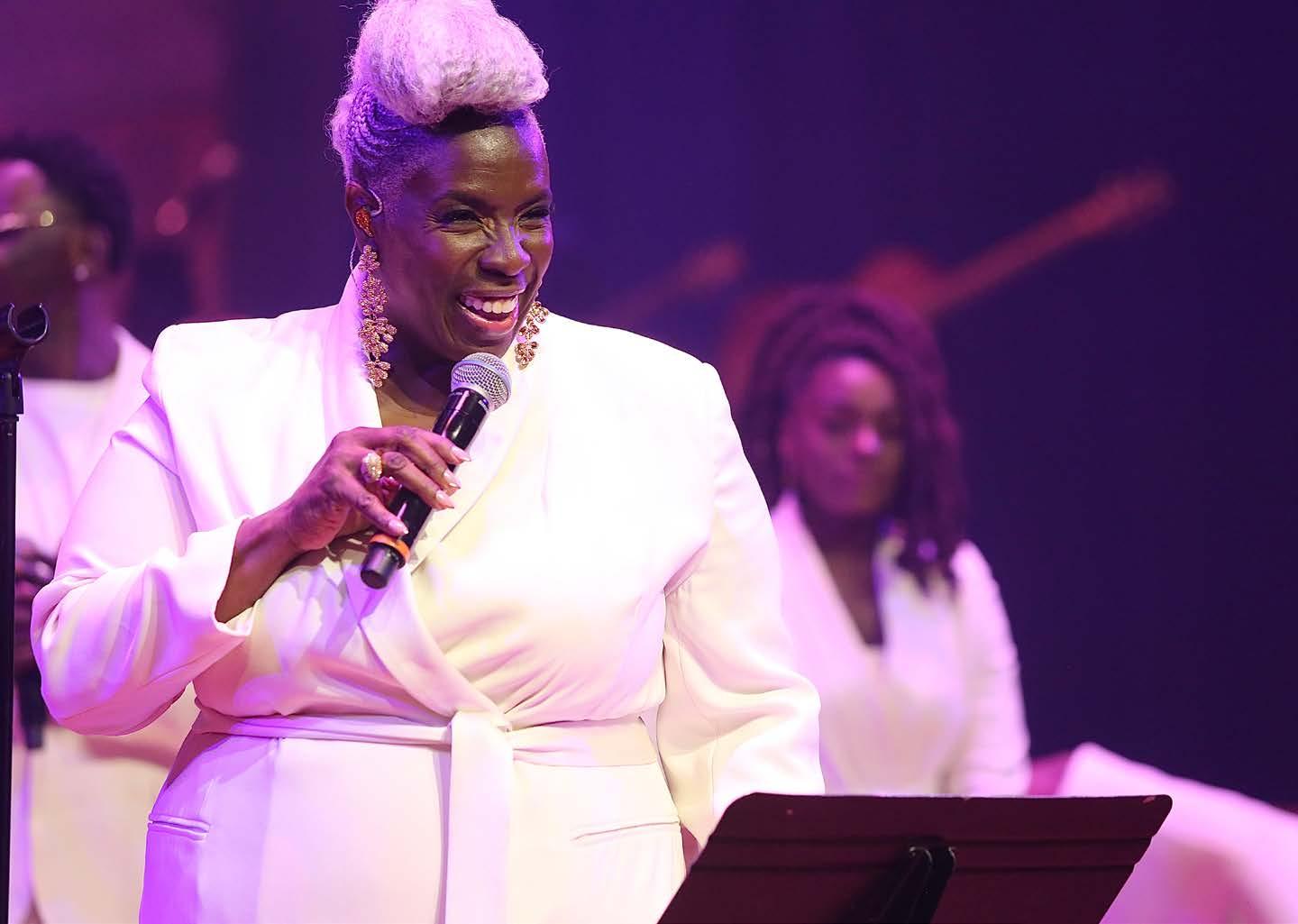
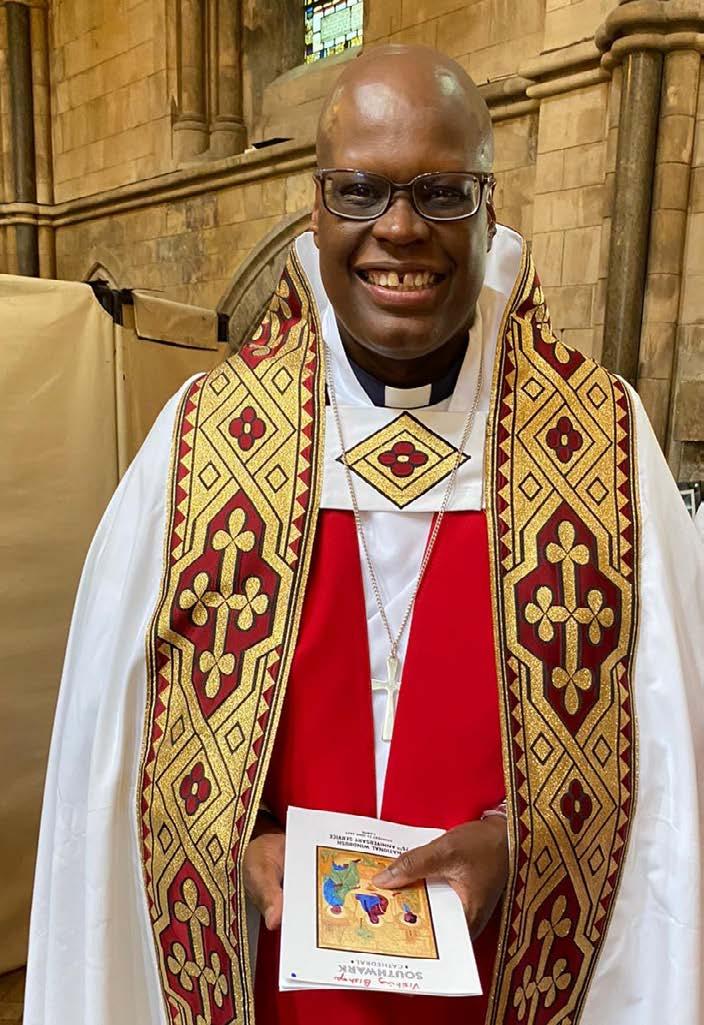
24 Royal Gospel Choir celebrates 30th anniversary By Juliet Fletcher
28 Food 4 thought
By Marcia Dixon MBE
29 Constantine or Christ?
By Gary Clayton
30 Put away guilt and shame and forgive yourself
By Karen Allen
31 Exploring self-leadership through the life of Jesus
By Andrea Graham
32 Will the real prophets of God please stand up!?
By Marvin Sanguinetti
33 Independent oversight group recommends CoE addresses legacy of African enslavement with £1billion fund
34 Black faith and Black health: Lessons for Lent and life
By Dr Selina Stone
35 The call to Kingdom Building
By Pastor Denis Wade

36 Broaching mental health conversations in church: Why and how? By Dr T Ayodele Ajayi
37 Honouring your God-given purpose through health and fitness
By Olivia Williams
38 Overcome stress with greater self-awareness and self-care
By Shirley Anstis
40 Women, let’s work together
By Victoria Lawrence
41 Befriending young people and families By Joy Roxborough
42 Loving and supporting others through difficult times
By Esther Kuku
43 Securing your marriage against divorce By Pastor Timothy Oladipo
44 Intimate scenes for the Christian writer By Vanessa Grossett
45 The pros and cons of protective hairstyles By Verona White
06
04 Find us on X and Facebook: @KeepTheFaithmag 16 08 18 24
BIRMINGHAM AWARDS EVENT CELEBRATES ACHIEVEMENT
Birmingham’s Edgbaston Stadium was the setting for the Potential Unlocked Awards (PUA) – an event founded in 2018 by businessman David C Hall to celebrate Black excellence and achievement amongst children and adults aged 40 and under.
People from across the UK attended the awards event, where a total of 16 awards were given to recipients across a range of categories, from Inspirational Person of the Year to Creative Arts of the Year.
Special guests present at the PUA included BBC Radio presenter Nikki Tapper; author and former advisor to a UK prime minister, Samuel Kasumu; Dr Dennis Kimbro, bestselling author of Think & Grow – A Black Choice; and Bishop Claion Grandison, leader of the New Testament Church of God.

Award recipients included Jessikah Inaba – the first Black, blind barrister in the UK to pass the Bar using braille. She was honoured with the Inspirational Person of the Year and Academic Excellence Awards. Another winner was Jamal Jeffers, who was awarded the Legal Excellence Luminary Award. He is the youngest Black appointment to the Judiciary in England and Wales. Financial adviser Adrian Benjamin was the recipient of the Finance Excellence Award; and Emilio McCalla, Director of E & R Property Group and Transforming Communities Hub, received the Visionary Property Investor of the Year Award.
Commenting on the awards, David said: “It was an honour to see Black excellence celebrated nationally, and greatness showcased from a diverse range of industries.”
Visit www.potentialunlockedawards.com


UK church leaders urged to encourage members to register to vote
Rev Al Sharpton, American Baptist minister and civil rights activist, was the guest of honour at a special meeting at the House of Lords, hosted by Lord Simon Woolley and Rev Ade Omooba, Chair of the NCLF.
Leading church figures from Britain’s Black Christian community, including Bishop Claion Grandison, Pastor Clement Okusi, and Bishop Mike Royal, as well as key community figures, such as Lee Jasper, and David Weaver, leader of Operation Black Vote, were among those present.
The central aim of the meeting was to share with church leaders the importance of encouraging their members to register to vote, as the UK is set to have key elections in the next eight months. The London Mayoral Election is scheduled to take place in May, and a General Election must take place by January 28, 2025. It’s imperative that the Black community is registered to vote if they want to play their part in the democratic process.
If you are not registered to vote, visit https://www.gov.uk/register-to-vote to add your name to the Electoral Register.
GOSPEL SINGER RELEASES CHILDREN’S BOOK ABOUT HER GRANDPARENTS

Renowned singer-songwriter and broadcaster Sharlene-Monique recently released her second book, A New Life, which celebrates the hope, courage and determination of the Windrush generation.
Sharlene-Monique has navigated the loss of her grandparents Winston and Mavis Anderson, by sharing their inspiring journey in A New Life. The couple migrated to the UK from Jamaica in 1958 to lay the foundation for a new life for their family.
Aimed at children aged 3–7 years, the experiences of the Andersons’ great-granddaughter, Tahlia, unfold as a poignant narrative. A New Life has been made all the more special by a TikTok video that captured the spirited dance of Sharlene-Monique’s 90-year-old grandparents. The video went viral and has been viewed over 500,000 times across multiple social media platforms.
Sharlene-Monique is set to go on a tour to share the book with young readers. She said: “When I shared the video of my grandparents dancing, I had no idea the response would be in the thousands. It brought so much joy to people. This book will ensure their legacy will live on for many years to come, and I am so proud of that.”
Visit www.sharlenemonique.com to get a copy.
www.keepthefaith.co.uk 05
WAREHOUSE WORSHIP
UK GOSPEL’S NEW KIDS ON THE BLOC K
One of the most popular music genres in UK Gospel is worship. Whilst some may argue that worship is not a ‘genre’ but rather a lifestyle, hopefully we can all agree that it is a powerful ‘style’ of music. Nothing beats singing songs of adoration to the uncreated Creator.
The likes of Noel Robinson, Donna Akodu and Muyiwa Olarewaju, among others, have successfully paved the way for a new generation of talented and anointed worship artists in the UK.
BET Sunday Best’s Niiella, Areatha Anderson and Jacy Mai form part of the new breed of worship artists whose gifts have made room for them further afield.
However, the last year has seen Manchester-based Warehouse Worship take the gospel industry by storm, with their fresh contemporary spins on popular worship anthems. Selling out the 7,000seater Copper Box Arena within weeks in October 2023 cemented the group’s status as the next ‘big thing’ in UK Gospel.
With a singular mission to create an atmosphere of worship so people can encounter Jesus in an unrestricted real and personal way, the group have built a recognisable brand that appeals to young
BY AKOSUA DF

and old alike. In addition to their arena Encounter nights across the country, 2024 will see the group take centre stage in front of a 35,000-strong crowd at the Big Church Festival, and support Dove Award-winner Sinach on her Ovo Arena Wembley headline concert.
Warehouse Worship founder, Victor Omosebi, recently took time out of his busy schedule to chat with Akosua DF.
AKOSUA DF (ADF): Warehouse Worship is the biggest thing in UK Gospel right now. You are selling out indoor arenas and pulling in thousands of people to your events. It does seem as though you’ve come out of nowhere! Some may even say you’re an ‘overnight success’, but I doubt that’s the case. How did the group come together and what was the vision?
Victor Omosebi (VO): The evolution of the group was very organic. I reached out to a couple of friends who love the Lord and love to worship. I shared the vision that the Lord had given me, and voilà, the rest is history, as they say. God has literally breathed upon our surrender, and it has culminated in soul-stirring Encounter nights across the country. The vision God


gave was simple, almost amusingly so: “To create an atmosphere where My people can gather and worship both in spirit and truth.” We embraced this vision with humility, starting small, yet steadfastly consistent. And, in doing so, we witnessed the hand of God at work, expanding our reach and touching the hearts of ever-growing numbers of people.
ADF: That is indeed a very humble response [laughs]. You have a unique ministry model, whereby you don’t release guest artist names ahead of your events. Most event organisers leverage the popularity of their line-up
06 Find us on X and Facebook: @KeepTheFaithmag

to help sell tickets, but that’s not your strategy. So every single event you put on must be a huge step of faith. Have you ever been tempted to unveil your line-up to push ticket sales?
VO: We don’t put any names or faces on our flyers; this was a specific instruction from the Lord. Containing our excitement can often be a challenge, especially when we’ve secured a guest artist for an event. It’s tempting to plaster their image all over the flyers to draw a crowd yet, amidst our enthusiasm, we’re grounded by a higher directive – one that calls us to maintain our focus on God. This principle isn’t just a guideline; it’s woven into the fabric of our team culture. Our priority isn’t the artist; it’s about directing attention to Jesus. By God’s grace, we fill arenas or perform miracles, but it is only a by-product of our aim, which is for people to encounter Jesus. While the thrill of a successful event or a packed venue is undeniable, it’s all secondary to the ultimate goal. It’s a testament to our faith, but it’s not a journey we undertake alone. Our vision is aligned and, with God’s guidance, we press forward.
ADF: I love that – your focus is the audience of one: God. I pray that you continue to keep the main thing the main thing. You have been packing out indoor arenas over the last couple of years, pulling in thousands of worshippers. That’s a feat no UK artist/group has managed to do in a while. What do you believe is the secret of your success?
VO: God, obedience, and His people – these three elements have been the cornerstone of our journey. It began with God’s revelation of a vision, followed by our unwavering obedience. In return, we’ve been blessed not

only with a vibrant community of worshippers but also with incredible individuals eager to join us in our mission to serve.
ADF: Your past events have featured Trinity Anderson, Ryan Ofei, Timothy Reddick and Todd Galberth. If you could have any artist at your next worship event, who would that be?
VO: Jesus? Just kidding! In all seriousness, while there are plenty of artists we admire and would love to host, we’re committed to seeking God’s guidance in our decisions. We aspire to welcome talent from all corners of the globe, whether it’s Minister Dunsin or Kirk Franklin. However, we trust we’ll reach that point where we are able host them, of course according to God’s perfect timing.
ADF: Oooh, amen to that! I can envision Kirk Franklin rocking with you all on stage. That would be surreal… I think he’d be blown away by your skill and gifting. I would also love to see you tour with Maverick City Music. I think you’d have to hire out the stadium for that… Never say never, though [chuckles]! So, what’s next for Warehouse Worship?
VO: In just two years, God has propelled us onto an extraordinary journey, spanning countries far and wide. We’re filled with excitement for what lies ahead. An album and EP are currently incubating and will soon hatch! Also, by God’s grace, we’re poised to extend our reach, igniting worship atmospheres from one corner of the globe to another. Who knows? Your country (Ghana) might be the next destination on our divine path.
ADF: Well, I guess our Keep The Faith family heard it here first! We look forward to your EP and album and hope to see you on the road soon.

Follow Warehouse Worship on social media @warehouseworshipuk

GOSPEL NEWS BIG CHURCH DAY OUT HAS ITS BEST UK LINE-UP EVER
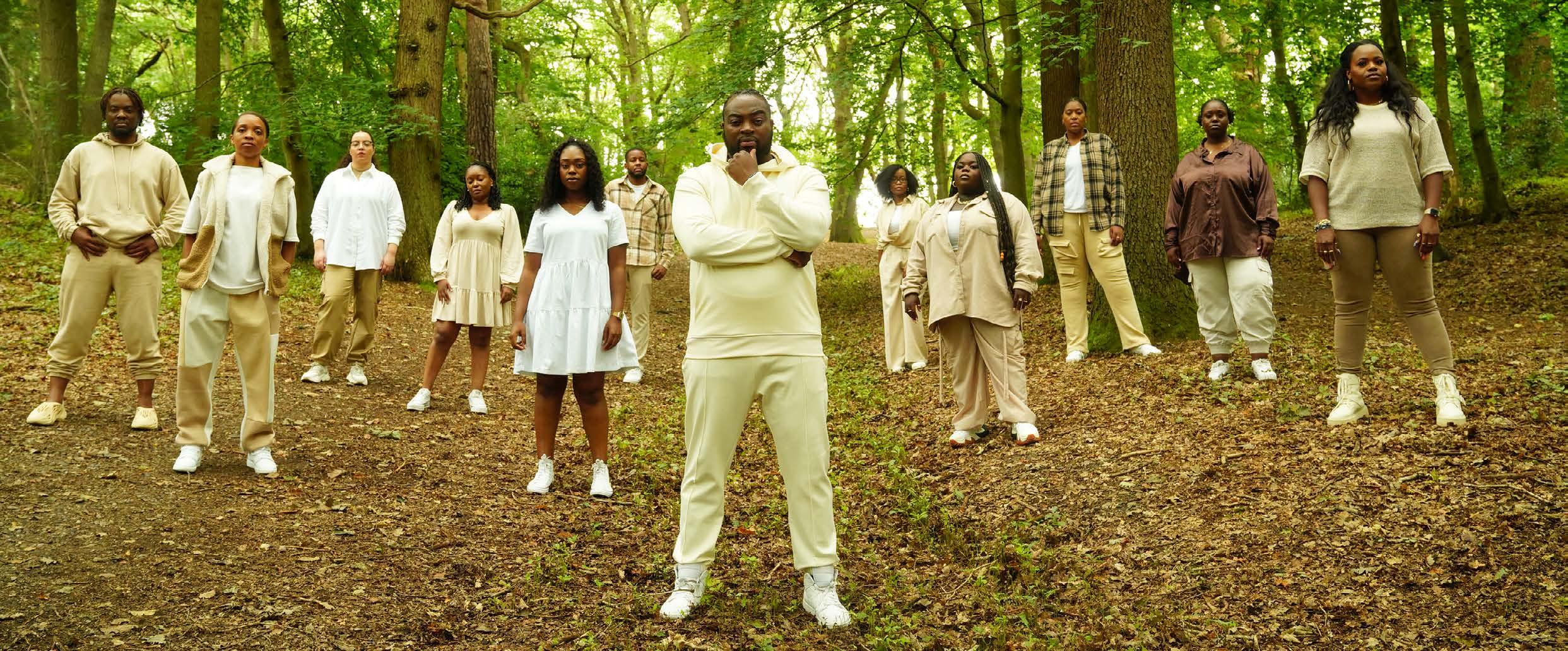
Hold on to your Redemption Hymnals or your iPhone 15 Pro Max, gospel music lovers, because the full Big Church Festival 2024 line-up has dropped, and it’s hotter than a Pentecostal preacher’s mic on a Sunday morning!
We’re not exaggerating when we say this year’s line-up might be the strongest, most star-studded and downright AMAZING collection of UK gospel talent ever assembled at one festival.
Get ready to experience the full spectrum of gospel at its best – from the electrifying energy of Volney Morgan & New Ye, to the spirit-lifting melodies of Junior Garr & The Spirituals, to the fresh anointing of Warehouse Worship UK. 2023 MOBO Award-winner for Best Gospel Act, Limoblaze, makes a return in his own right after joining Lecrae on stage last year for their GMA Dove-nominated collaboration, Jireh. Also, StepFWD Awards’ current Male Artist of the Year, CalledOut Music, is set for a highly anticipated festival debut that is sure to see the attendance numbers go up.

“So excited to be called back for another Big Church Festival. We had an amazing time last year and so good to see the spectacular line-up for 2024. As the BCF team said, get ready for some ‘...vibrant dance moves, high-energy performances, rhythmic beats, and that epic gospel sound.’ Let’s go!”
Volney Morgan
And did we mention the Queen of African Gospel herself, Sinach? That’s right, fresh off her London live album recording, she’s bringing her undeniable grace and powerful vocals to the Big Church stage! Other top talent announced include last year’s MOBO winner, Still Shadey, along with Poetess Jess, Storm Cecile, Reblah, DJ Shunz, Praise Lubangu, Samu’el, Nizam Speaks, and many more!
Big Church Day Out – now called Big Church Festival – isn’t just a festival; it’s a full-blown gospel extravaganza. Imagine yourself immersed in a sea of uplifted voices, swaying to infectious rhythms, and soaking up the sheer joy of celebrating faith through music. Picture goosebump-inducing harmonies, soul-stirring solos, and enough positive vibes to light up the entire Wiston Estate!
Big Church Festival was created by Tim Jupp, a founding member of Delirious, and is one of the UK’s largest outdoor Christian and gospel music events. Over 30,000 attendees from various cultures, ages, denominations and church backgrounds across UK and Europe will be at this festival.

This is the ultimate ‘big church family hangout’ where you can catch your favourite band, experience something new, all while camping with friends, letting the kids enjoy the countryside and rides and so much more. There truly is something for everyone, with multiple stages and spaces catering for poetry and spoken word, worship, rap, acoustic, and all the genres in between.
We can’t promise you won’t be tired from running to the different stages to catch the various acts, but we can guarantee an unforgettable experience that will leave you feeling recharged, inspired, and overflowing with the Spirit.
So, what are you waiting for? Secure your tickets now and join us for what promises to be a landmark moment in UK Gospel history. Let’s raise our voices, lift our spirits, and celebrate the power of music and faith together!
Visit www.bigchurch.group/2024/astepfwd to get discounted tickets.
CALLEDOUT MUSIC
SINACH
VOLNEY MORGAN & NEW YE
Rainbow Entertainment to bring William McDowell and
Fred Hammond
to the UK
As a beacon of light in the entertainment industry, Midlandsbased UK company Rainbow Entertainment has long been dedicated to promoting gospel music, recognising its profound ability to uplift, inspire and unite audiences from all walks of life. With their upcoming UK shows, they aim to amplify this message of hope and joy, reaching new heights in spreading the Gospel through the power of music.
Following on the heels of hosting Pastor William McDowell last year in two sold-out concerts in Birmingham, Rainbow Entertainment brings him back to the UK on Friday 26 April, for his first-ever headline event in London, dubbed The Promise: Worship Experience
William McDowell, with his soulful vocals and heartfelt lyrics, has captivated audiences with chart-topping hits, such as I Give Myself Away and Withholding Nothing. His music transcends cultural and geographical boundaries, touching the hearts of believers and non-believers alike with its message of love, redemption and surrender.
Rainbow follows this up on 18 May, with the Worship in Spirit and Truth Gospel concert, headlined by the multi award-winning international worshipper and songwriter Fred Hammond, which also features Joe Mettle, Bishop Cortez Vaughn and Women In Praise UK
Fred Hammond, a true legend in the world of gospel music, is known for his dynamic stage presence and electrifying performances. With a career spanning decades, Hammond has garnered widespread acclaim for classics like No Weapon and We’re Blessed. His music not only entertains but also serves as a source of strength and encouragement for those facing life’s challenges.
Founded in 2014, and now celebrating 10 years of kingdom-building, Rainbow Entertainment’s commitment to promoting gospel music goes beyond just putting on a show; it’s about creating a space where souls can be nourished, spirits can be lifted, and hearts can be transformed.
 FRED
FRED
Event promoter, Pastor Stephen Mpofu of Rainbow Entertainment said: “Through our events, we aim to offer attendees not just a concert but a divine experience. Our mission is to present moments where the power of gospel music can truly be felt, fostering an environment of worship, reflection, and profound Holy Ghost experience. As we celebrate a decade of service, our commitment remains steadfast: to spread the Gospel through the universal language of music, touching and changing lives and lifting up the Name of Jesus across the globe.”
As the anticipation builds and excitement mounts, these events promise to be more than just concerts; they are a celebration of faith, unity, and the power of music to touch lives and change hearts.
Visit www.rainbowentertainment.co.uk to get your tickets.
5 MUSIC RELEASES THAT WILL BLESS YOUR EARS

Gospel music continues to inspire with powerful voices and uplifting messages. Each artist mentioned below has a wealth of other music for you to discover, so dig deeper and find whatever else resonates with your spirit. These are just a taste of the vibrant UK gospel scene. So put on your favourite headphones, crank up the volume, and let these soul-stirring melodies bless your day!
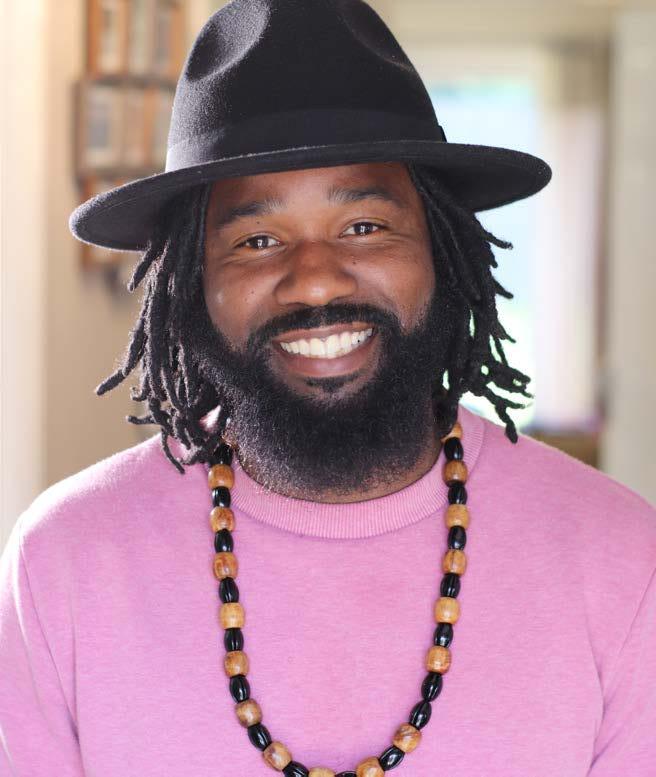
Desola, Lily of the Valley Volney Morgan & New-Ye, He Is Reblah, Marie Love and TBabz, Never Leave Me
Patricia Knight-Scott, Your Love

www.keepthefaith.co.uk 09
Jason Nicholson-Porter, Smile Child
PATRICIA KNIGHT-SCOTT
JASON NICHOLSON-PORTER
WILLIAM McDOWELL
HAMMOND
FWD FOCUS
2024 is in full swing, with a plethora of events and activities for youth and the young of heart. From Reblah’s amazing listening party, to DJ Shunz’s birthday games night bash, to Lurine Cato’s love event, the scene hasn’t been short of fun things to do, packed with great music! With a huge number of music releases on the UK horizon, there is also one ongoing event that stands out and deserves your attendance.
One event you can’t miss is The Grace Brunch – the UK’s BIGGEST Christian Day Party! Taking place on April 7 at Pop Brixton, 49 Brixton Station Road, London SW9 8PQ.

“Our very first event was at Boxpark Croydon. This saw 600 tickets sold, which blew us away. It was amazing to see so many young people gather for good food, amazing entertainment, and great fellowship, catching up with old friends and meeting new ones. The next Grace Brunch is at Pop Brixton, and you don’t want to miss it, so come through and catch a vibe with us!”
Samuel John
Visit www.instagram.com/thegracebrunch/ for full details.
Gospel music loses a quiet but remarkable force in Adebayo of 7GospelTracks
The UK recently lost Adebayo Ibukun Samuel Abimbola – a man of profound impact within the community of believers, a dedicated Christian blogger, and a passionate advocate for gospel music artists. Adebayo sadly left us after bravely facing a brief but challenging battle with cancer. We first came across him through his work with African Gospel Music & Media Awards (AGMMA) and subsequently as founder of 7GospelTracks.com. He was one half of the duo that can be credited with the transformation of the UK’s Gospel Music Industry Alliance. Long may his legacy continue, as we continue to pray for his family and loved ones.
“Adebayo was one of the humblest souls, quiet yet firm in his convictions. Although always preferring the backstage, Adebayo was a strong force and trailblazer. It was such a
joy to work with him on GMIA and on many other collaborations. RIP, brother.”
O’Neil Dennis

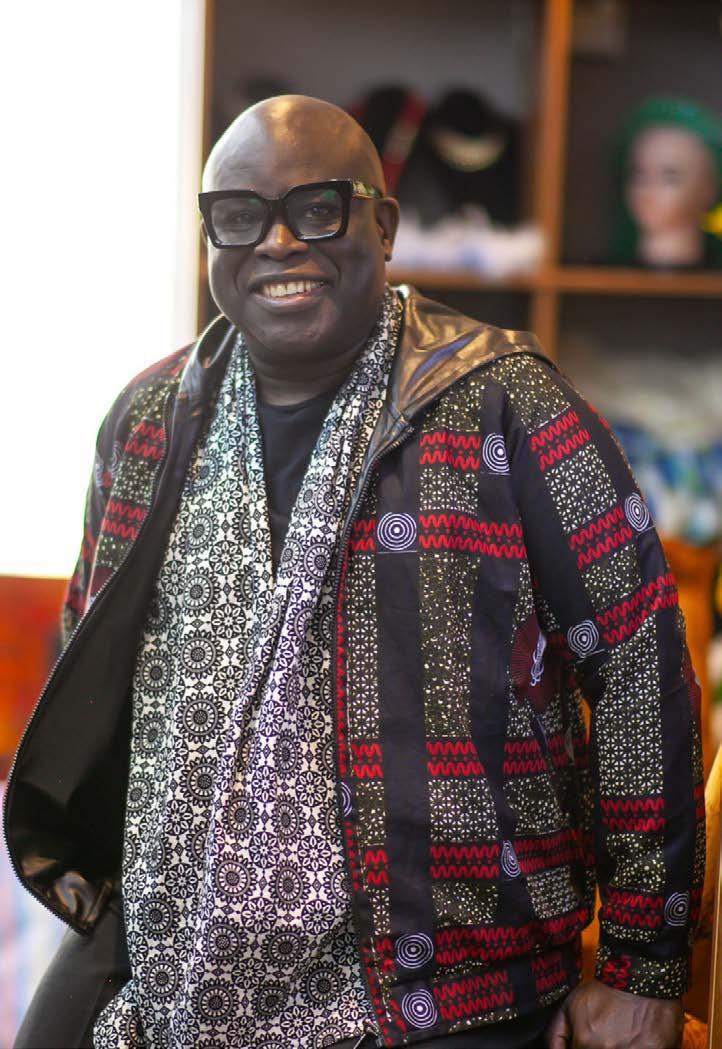
How Sweet The Sound will be at the Royal Albert Hall this October
Royal Albert Hall, London will open its doors to creatives from UK, Europe and beyond in the upcoming How Sweet The Sound event on 20 October 2024. Auditions are open across Europe: calling all choirs, praise teams, soloists, and spoken-word artists. This event will be hosted by Gold/Platinum multi Grammy Award-winning Donald Lawrence, with a star-studded judging panel to include Bazil Meade MBE, Karen Gibson MBE and Muyiwa Olarewaju OBE.
“Choirs across UK and Europe share a strong connection, with many of us visiting multiple countries many times each year to teach and perform. How Sweet The Sound, launching in UK/Europe this October, is progress and timely. I’m sure it will have a huge positive impact and bring even more diversity to the International Gospel Community.”
Bazil Meade MBE
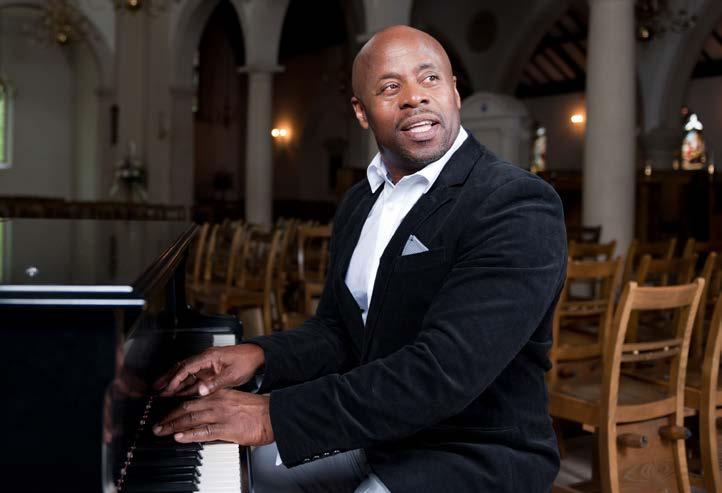

Gospel News is curated by O’Neil Dennis, Founder of AStepFWD.com, the UK Christian Charts, StepFWD Awards and more. To get in touch, email info@astepfwd.com
10 Find us on X and Facebook: @KeepTheFaithmag
Visit www.howsweetthesound.co.uk for more details.










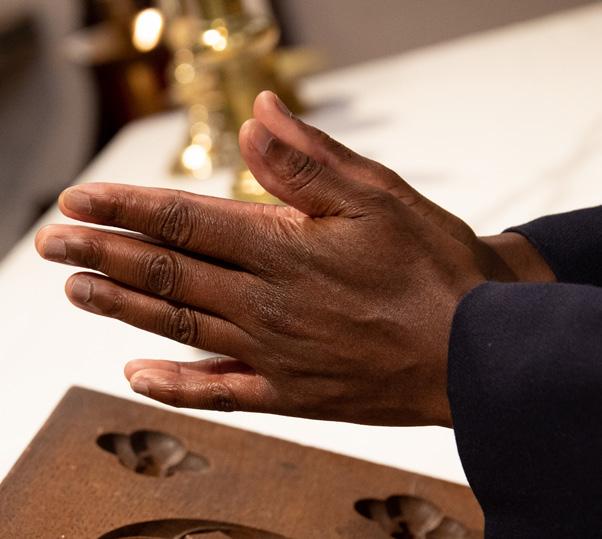




www.keepthefaith.co.uk 00 7 days, so to beat extreme poverty MOVE MAKE GIVE PRAY FUNDRAISE GATHER SHARE This Christian Aid Week, what will you do? Join us by scanning the QR code. Take on our 70k in May challenge, hold a cake sale, or deliver our iconic Christian Aid Week envelopes. However you get involved, remember that together, we can beat extreme poverty. Christian Aid Week 12–18 May Christian Aid is a key member of ACT Alliance. Eng and Wales charity no. 1105851 Scot charity no. SC039150 Company no. 5171525 The Christian Aid name and logo are trademarks of Christian Aid. © Christian Aid March 2024 Photos: Christian Aid/ Luca Marino J441650 many ways
Does the Church provide the key to UK Gospel’s success?
Roy Francis explores the rise of gospel in the UK, the impact of CCM on Black worship, and challenges gospel artists face to create music for the church instead of pursuing elusive chart success
Recently, a friend invited me to accompany him to a church he had considered joining since moving to a new area. Located on a busy high street, the church’s bold, imposing structure showed it had been in the same spot for a long time – in fact, since the reign of Queen Victoria. Despite its external façade, gone were the traditional pews, replaced by comfortable easy chairs and, with a large media screen and soft lighting, I knew I was in an evangelical church. Evangelicals share many similarities with Pentecostal Christians – both emphasising being ‘born again’, and having a personal relationship with God.
We were warmly welcomed, offered tea, coffee, and biscuits, and even invited to take them to our seats in the main auditorium. At precisely 11am the service began – soft, gentle, reflective and prayerful. It was all remarkably familiar and comforting. The sermon was both relevant and thought-provoking, complementing the two readings – one from the Old Testament and the other from the New – leaving us with plenty to contemplate for the week ahead.
In many evangelical churches, the traditional organ and hymns have given way to new worship styles. Instead of the familiar hymns in this church, a Black worship singer guided the congregation through the chosen songs, singing to backing tracks downloaded onto her mobile and played through the

church’s PA system.
This experience with technology was entirely new to me, and I reflected deeply on the choice of songs. While some resonated with the congregation, others posed difficulties. Among the latter were songs typically crafted for soloists or smaller groups, inherently unsuitable for congregational singing. This highlights the evolution of worship music in churches today – including Black Pentecostal churches – where the adoption of Christian Contemporary Music (CCM), primarily composed for groups and soloists, often struggles to integrate seamlessly into Black Pentecostal congregational singing and worship.
Yet, it wasn’t just the music in the church that caught my attention; rather, it was the broader question of the evolving role of music in Black Pentecostal churches. How does it intersect with the changing landscape of modern worship, and what role does gospel music play in it today?
To answer these questions, looking back at the path and evolution of music in the Black Pentecostal Church might be helpful. In its early years, the music was introduced to Britain by Windrush Christians who sang hymns and choruses, either unaccompanied or with perhaps only a tambourine. As new members arrived, including those who were musicians, some churches could boast a
mini orchestra of individuals who played the piano, guitar, banjo, saxophone, trumpet, and, later on, the drums.
The significant transformation came in the 1960s – as it did in many ways in Britain and the Caribbean community – with the US release of ‘Oh happy day’ by Edwin Hawkins in 1969 and the arrival of gospel music from America. The song went global, sparking interest within Caribbean churches. At first, church leaders refused to embrace the song because of its secular success. However, they reluctantly accepted it, mainly because they knew it in its original form as ‘O happy day that fixed my choice’ – a song they sang at their baptismal and altar call services. What the song did was introduce a new type of music to the Caribbean Christian community – not so much to the church, but to the young people in it, who, inspired by the global success of Edwin Hawkins’ song, formed their own choirs, showcasing their music to audiences, mainly outside of the church.
At first, the leaders were reluctant to support the new music. They eventually acquiesced when the choirs began to attract national attention. The publicity they brought to the church and the community was irresistible, and the objection of leaders soon changed with the support of the media and record companies behind the choirs. At the same time, the rising popularity of Tamla Motown
12 Find us on X and Facebook: @KeepTheFaithmag
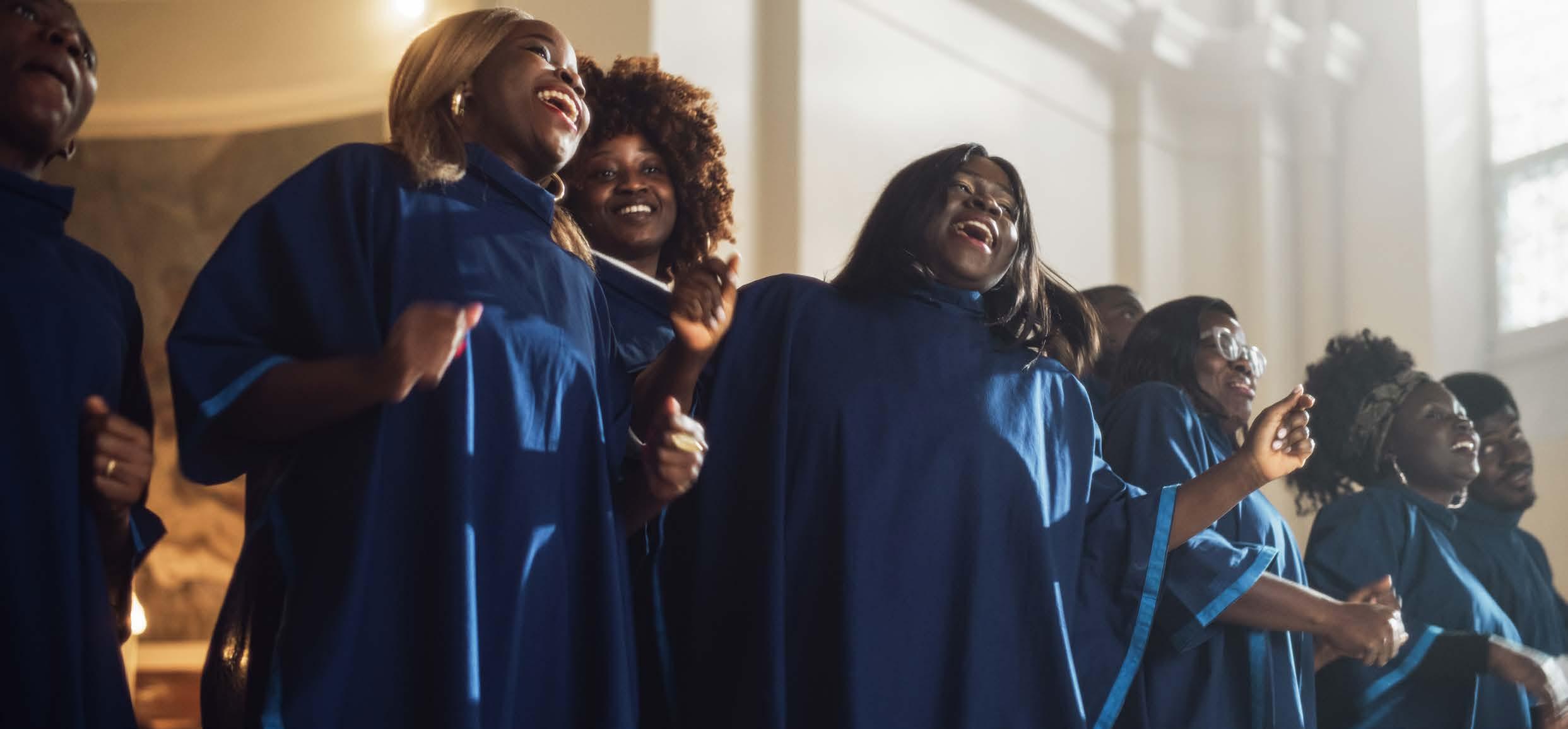
music was also influential, and along with the popularity of gospel music, it further influenced perceptions of Black people in Britain.
Before this cultural shift, the public’s perception of Black people in Britain primarily revolved around their socioeconomic struggles and experiences of racial discrimination. However, it was difficult not to be captivated by the joyful performances of young people expressing their faith enthusiastically and singing about it so joyously as if at a pop or rock concert. That’s how the British public in the 1980s saw gospel choirs and their music. It was pivotal and transformative, fostering a new appreciation of the music and of the Windrush Christian community.
The influence of gospel music also spread to English churches, especially the evangelical ones, where they modernised their services and freed up space for a more relaxed and informal worship experience. The organ, so long a feature of church music, was quietly put to one side and replaced by modern instruments, pioneering a new soft, folk rock Christian sound.
White Christian groups also upped their game, especially in their performances and the commercial development of their music. Word Records and Kingsway Music – two major Christian labels – got behind evangelical artists, and artists like Graham Kendrick came to the fore, appearing on People Get Ready, the first Black gospel music series on British television, indicating its popularity.
Gospel has thrived in Britain, maintains widespread support, and continues to have a presence on television. Today, thousands of people enjoy singing gospel and its related music. The problem is that once the music emerged from the church, it followed the record business template, with an emphasis on producing hit records and albums.
Since then, UK Gospel artists have followed
this commercial model, and its legacy looms large. It dominates the music’s development and the artists’ thinking, and accounts for the ineffectiveness of the music today. Perhaps it’s time to assess this legacy; if only because the changes in the record industry, the Internet, and social media have altered the music business completely, and the once likely chance of artists – let alone gospel artists – being signed to a major record label is becoming more and more remote.
Also, at the level that most gospel artists operate, they don’t need the backing of a record company to be successful. They need churches – the natural audience for their music – and there are plenty in the Black Pentecostal community. It will, however, require a new mindset and an entirely new way of looking at gospel music. Perhaps gospel artists should take a leaf out of the book of white Christian artists; their music is written for and regularly sung in their churches. They have had nothing like the profile and accolade that gospel music has had, nor is their music viewed in the same way gospel music is – as an art form – yet their artists regularly write music for their churches, perform in them, or, should I say, ‘lead worship’ in them, and are enriched by their talents.
African churches tend to fare better than Caribbean churches in this regard. Today, in African churches, Muyiwa, Sinach, and Nathaniel Bassey’s songs are being sung. African Christians also tend to prefer CCM. This is because their journey to Christian music was influenced by white praise & worship artists, whilst the Caribbeans’ journey was led primarily by Black gospel artists from America.
The preoccupation of CCM by African churches will, I suspect, continue as they remain successful, but where does it leave the music that grew out of the plantations in America, mixed with Caribbean indigenous
music, brought to Britain in the Windrush era, which became a worldwide phenomenon in the 1960s, and is today one of the best ways of spreading the Gospel of Christ? This is a question every gospel artist in Britain should ask themselves, for they have a responsibility to the music and to the churches that gave rise to it in the first place.
Gospel musicians can play a helpful role in this regard. Many have played at the highest level and performed worldwide, accompanying many of the biggest names in the business. Some have even earned good money, too. They would have gained tremendous knowledge and experience. I’m not sure, however, that they recognise their historical role and the debt they owe to the music that gave them their ‘break’. What, for example, are they now giving back? How are they equipping the next generation of artists and musicians? What knowledge are they passing on? What are they doing about Britain’s shortage of ‘good gospel songs’? How many of them are writing and arranging songs to be sung in churches rather than trying to achieve that elusive hit record?
While it may have been necessary in the past and was an indication of the talent in Caribbean churches that record companies were willing to invest in their artists, it is no longer the case, nor do gospel artists need any more to rely on record companies to be successful. The music business has changed, and so have churches. Gospel artists have so much now in their grasp, but it takes eyes to see it.

Roy N Francis is a former BBC TV producer, founder of Roy Francis Productions and is author of Windrush and the Black Pentecostal Church in Britain Visit www.royfrancis.co.uk
www.keepthefaith.co.uk 13
Youth department of UK’s oldest Black Pentecostal church turns 70



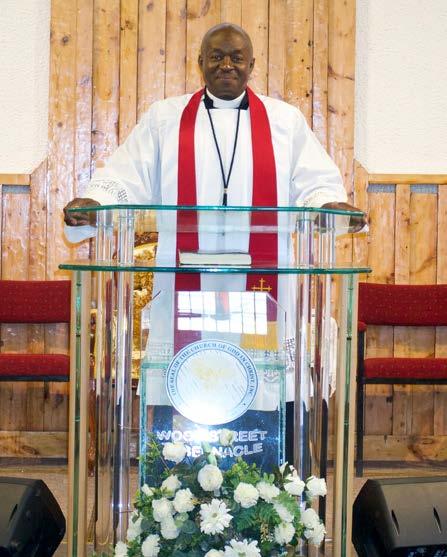
The Church of God in Christ (COGIC), founded in 1948, is Britain’s oldest Black Pentecostal Church – and so is their youth department, which will be celebrating its 70th anniversary at their annual youth convention. COGIC International Youth President Superintendent Nathaniel Green will be a special guest speaker at the event taking place from 24-27 May at the COGIC headquarters in Luton, Bedfordshire.
The current COGIC UK Youth President, Birmingham-based minister Elder Simeon Whittingham, stated: “I am delighted to be hosting the 70th gathering of the COGIC UK Youth Convention. It will be a truly momentous occasion, as we reflect upon the rich heritage of this grand church and the achievements of our young people over seven decades of ministry in the UK. It is with a sense of honour that I reflect upon the great shoulders on which I stand, and the great anticipation and excitement I have for what the future holds for the COGIC UK Youth ministry.”

Currently led by Bishop Dr Alvin Blake, who celebrates 25 years in the role this year, COGIC was founded in 1948 by Mother Mary E McLachlan. The church was officially incorporated into COGIC in 1952 by Bishop Charles H Mason when he visited the UK for the World Pentecostal Conference.
COGIC’s National Youth Department
was launched in 1954, and the late Mother Jean Reynolds was its very first National Youth President.
Inspired by the Lord, Mother Reynolds started the renowned COGIC National Youth Choir, and worked tirelessly to create opportunities for the choir to sing at various events. At times it comprised of 300 members.

During the 80s and 90s the choir performed in Germany, Israel and Spain, and sang at numerous venues, including Luton Football Ground, Westminster Abbey, Westminister Central Hall, Southwark Cathedral, the Royal Albert Hall, and the Barbican Centre. The choir sang on legendary TV show People Get Ready with Jesse Dixon and Shirley Caesar. The choir also recorded singles and albums. In 2007, the New Generation of Hope choir, NGOH, also released an album and had a choir called Youthin It Up!
Most notably, COGIC’s National Choir played a major role in introducing UK audiences to Black Pentecostal church worship and the power of gospel music. They were the first Black gospel choir to be featured on BBC TV’s Songs of Praise and were heavily featured in the historic Songs of Praise broadcast from Southwark Cathedral in 1984.
Following Mother Reynold’s tenure in the role, Pastor Stephen Nelson was appointed as the second National Youth President in 1998,
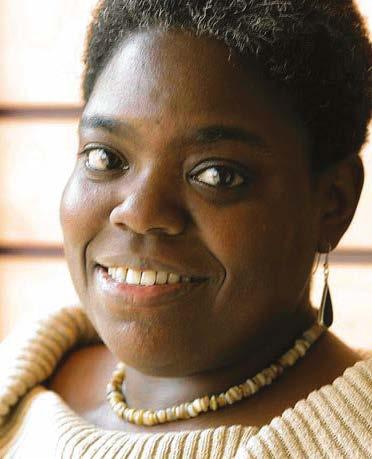
a role he held until 2021 when Elder Simeon Whittingham took over.
There are several individuals who were raised in COGIC UK who have become people of renown both within and outside the denomination.
They include:
Rebecca (Becca) Folkes: A professional recording artist, born out of COGIC, and who is receiving international recognition for her talent and Spirit-led vocal and worship ministry.
Lavine Hudson: She was the first Britishbased female gospel singer to sign a recording contract with a major record label as a gospel artist. In 1988 she was signed by Virgin Records and released two critically acclaimed albums.
Nicky Brown: One of the first and most successful of the musicians, songwriters and producers to come out of the UK gospel scene. Nicky is also one of the first musicians to be officially appointed Ministers of Music at RUACH City Church. He has also shared the stage with many well-known artists.
Douglas Wallace: COGIC UK’s Minister of Music and a pioneer of the early UK Gospel sound. Douglas Wallace has worked with countless gospel artists past and present. He now serves as pastor of COGIC Wood Street.
Juliet Fletcher: A key pioneer of the UK gospel scene, she founded the Gospel Music Industry Alliance, the first commercial gospel promotions company and governing body, and introduced the concept of ticketed gospel concerts on the scene. She also served as a BBC producer, helping to increase its gospel music output and produced the Deniece Williams Show for many years.
Visit www.cogic.org.uk
14 Find us on X and Facebook: @KeepTheFaithmag
BECCA FOLKES
LAVINE HUDSON
NICKY BROWN
DOUGLAS WALLACE JULIET FLETCHER
ELDER SIMEON WHITTINGHAM
MOTHER JEAN REYNOLDS
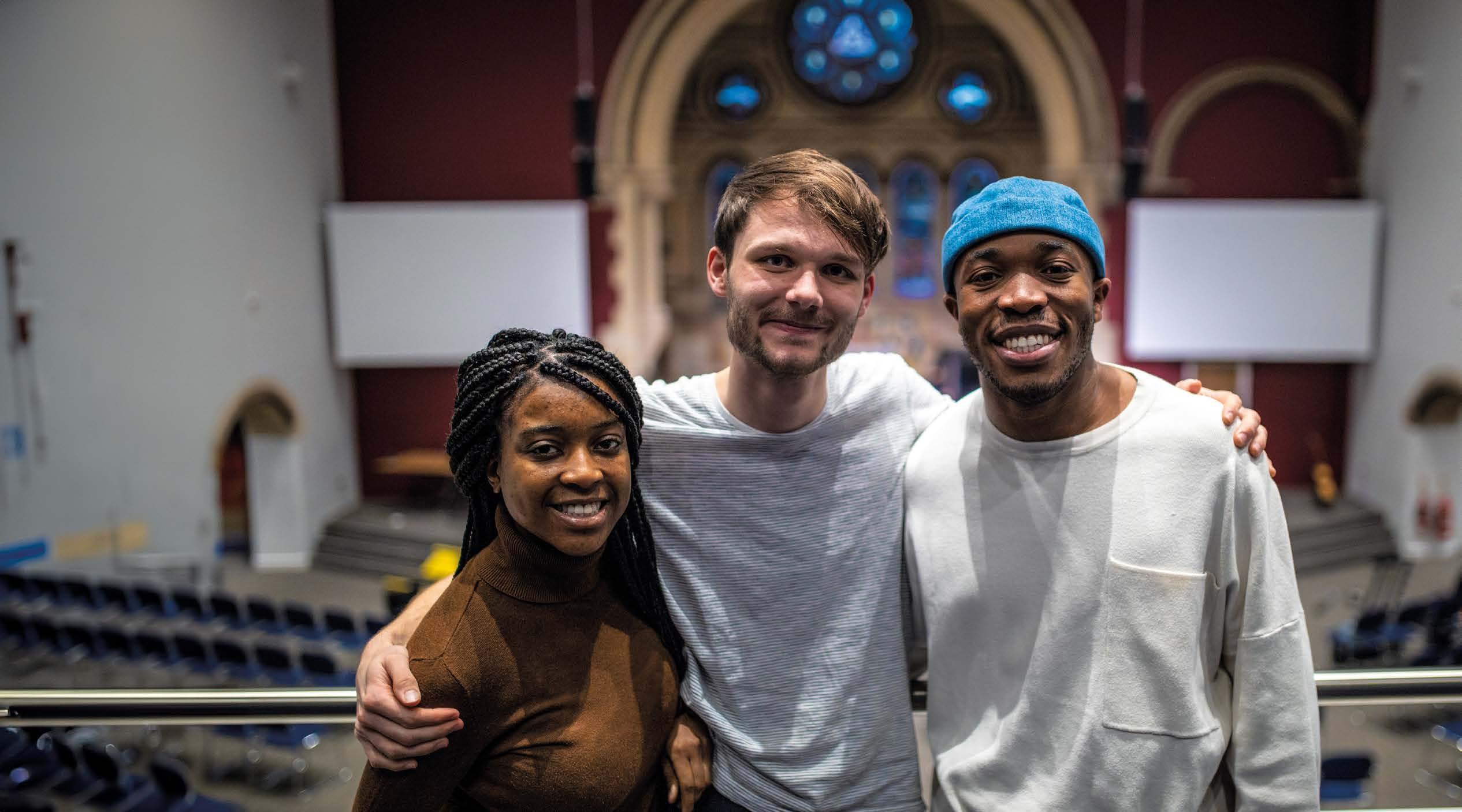
The church has so much potential for growth.
FUTURE YOUTH (FY) is an opportunity for 18s-30s to spend a year growing in young people and children’s ministry through ministry placements, training and mentoring.

FY is more than just a great experience year though; it is a chance for young people to be championed and for churches to grow. Youth and children’s work can sometimes be made to feel like the smallest cog in the machine – and yet it lays the groundwork for the future of the church as well as bringing life and vibrancy to church congregations today.
FY participants test God’s calling on their lives by pursuing ministry in a safe and supportive environment and receiving training through a nationally run course. All placements will provide ministry opportunities across a range of ages and contexts. The year is free to do with accommodation and expenses covered.
Future Youth meant that I could do a placement at an established church, while also pioneering a new youth project at IMPRINT Leicester. I hope this will help me improve my caring for people, being a mentor for youth and my evangelism to bring Jesus to people.
Joshua Leicester Diocese

Find out more at cofe.io/mes

The woman unafraid of doing something new
Dr Pearl Jarrett, 61 is a multi award-winning woman who doesn’t allow age, lack of experience or the challenges of life to stop her from doing new things. Married for 34 years to Errord, and mother of three, Pearl runs a charity to support the vulnerable in Jamaica and Sierra Leone, and took supplies there herself. Aged 50+, she enrolled in an acting school and since leaving has been booked to work on adverts, TV programmes and films. Just recently, she set up the Gospel School for the Performing Arts (GSPA) to train gospel artists to act. She spoke to Keep The Faith about her life, her faith, and her plans for the future.
KEEP THE FAITH (KTF): If anyone follows you on social media, it’s easy to conclude you’re a woman of action, always trying something new, or doing things others only dream about. Where does this desire to live life to the full come from?
PEARL JARRETT (PJ): Some years ago, I was diagnosed with stomach cancer. This was a pivotal moment in my life, and I decided that if the Lord would spare my life and give me a second chance, I would really
make my life count. When I came out of hospital, after reconstructive plastic surgery, I made up my mind that I was going to live my life as if I had nothing to lose. When you stare death in the face, it really gives you a different perspective, and I realised I had spent way too much time talking myself out of things, and decided I wasn’t going to do that anymore.
KTF: Do you get frightened whenever you step out and embark on projects where you have absolutely no experience?
PJ: I absolutely get scared, but I believe in that phrase, “Feel the fear and do it anyway”. I discovered that everything I ever wanted was on the other side of fear, and if I could just push past the fear element, I would be fine. I also discovered that God shows us a picture of us doing things and He waits to see what we’ll do with that information. One day I realised God was just pulling the curtain back quickly, giving me a glimpse of what was possible in my future. He was expecting me to make it a reality. People say if you can see it, you can have it, but many of us have seen it, but we just don’t believe it.
KTF: You are a woman who has overcome many challenges, including cancer and supporting your son in 2014 when he suffered with blood cancer. How did your faith in God help you through those difficult times?
PJ: God was – and still is – absolutely everything. When Kierran got diagnosed, I really had to take stock of my Christian life and ask myself some tough questions. Is this something that I actually believe in, or just something I say and do on Sundays?

16 Find us on X and Facebook: @KeepTheFaithmag
There was NO middle ground. I asked three people I trust, who I believe hear from God: “Is God taking my son?” and they all came back and said “NO!” At that point, I knew that the devil was trying to kill my son. I made up my mind it was time to roll up my sleeves and engage in spiritual warfare, and I told the enemy “NO! You can’t have my son!”
KTF: One action you have been greatly admired for is going to acting school in your 50s. What inspired you to do so, and how did you find the experience?
PJ: I’ve always wanted to be an actor. I was very good at it when I was at school, but my parents told me to get a ‘proper job’. Acting was on my bucket list when I came out of hospital. Within two weeks of making a decision, I was at an audition for drama school. My audition was one of the most embarrassing things I’ve ever done in my life! I remember the man throwing his pencil down and just shouting “Stop!” I gathered my things, ran out the door, and cried all the way home. Two weeks later, I got an email saying I had got into drama school! When I got there, it was soooooo intimidating, as everyone was the age of my children. One day I thought to myself, the world is made up of lots of different types of people, so somebody is going to want to cast a Black mother for something, and that could be me. It’s a good job I stayed, because my very first job was being the face of NatWest. That one job repaid my four years of drama school fees and I still had change left over.
KTF: What kind of roles have you enjoyed since leaving acting school?
PJ: The NatWest commercial was huge My face was on TV, cinema, billboards, trains, buses, newspapers… It got to the point where people were stopping me in the street. Since then, I’ve done numerous commercials, plus TV, theatre and movies, including Aladdin with Will Smith. They’ve flown me internationally, filming in Romania, Belize and Canada. One of the most exciting jobs I’ve done was a movie for the Hallmark Channel, Caribbean Summer, where they flew me to Belize to film on the beach for three weeks, and a couple of months ago I filmed Silent Witness
KTF: You recently embarked on another new project and launched a drama school for gospel artists. Can you share the reasons for this?
PJ: This is the realisation of a vision I’ve had for over 25 years. I remember sitting in Disneyland in California with my husband
and two small children, watching a live production of The Lion King. I turned and said to Errord: “We could do this.” He said: “We could do what?” I said: “Think of all the gospel singers we know, all they need is the acting training.” Then life happened and we fast-forward 25 years. I decided it was time to birth that vision I saw when I was at Disney World, so I started the Gospel School for the Performing Arts (GSPA).
KTF: What has been the response of gospel artists and those involved in Christian drama to the GSPA?
PJ: The response has been amazing. More than I had envisaged. A lot of older people have come forward. I think they were just inspired by me, seeing me doing this at my age, but now younger people are starting to join. What is lovely is that it’s not just actors, but it’s also playwrights, directors, producers, etc. I’ve decided to not just have a drama school, but to build a Gospel Music Theatre industry, where everybody can come and use their gifts within the performing arts, to take the Gospel to the world and reach people who may never set foot in a church.
KTF: What kinds of projects/ productions should we look out for from the GSPA in the near future?
PJ: We have two big milestones this year. One is to finish the basic training and get students to the point where we can have a Launch Performance, in front of specially invited gospel music guests, along with musical theatre industry professionals, to showcase what they have been learning. The second big milestone after that is the Christmas Production. We want to use all gifts, so if anyone is reading this and you think you could contribute, please get in touch.
KTF: Finally, you are a woman who is always up to something. What other new thing should we expect from you this year?
PJ: I have been approached to start a new TV channel, as if I haven’t got enough to do! The reason why I am considering it, is because it will be an amazing outlet for my actors, so they wouldn’t just have to be trained solely for theatre, but they could progress into TV and into movies. For that reason, it’s definitely a possibility, so look out for that.
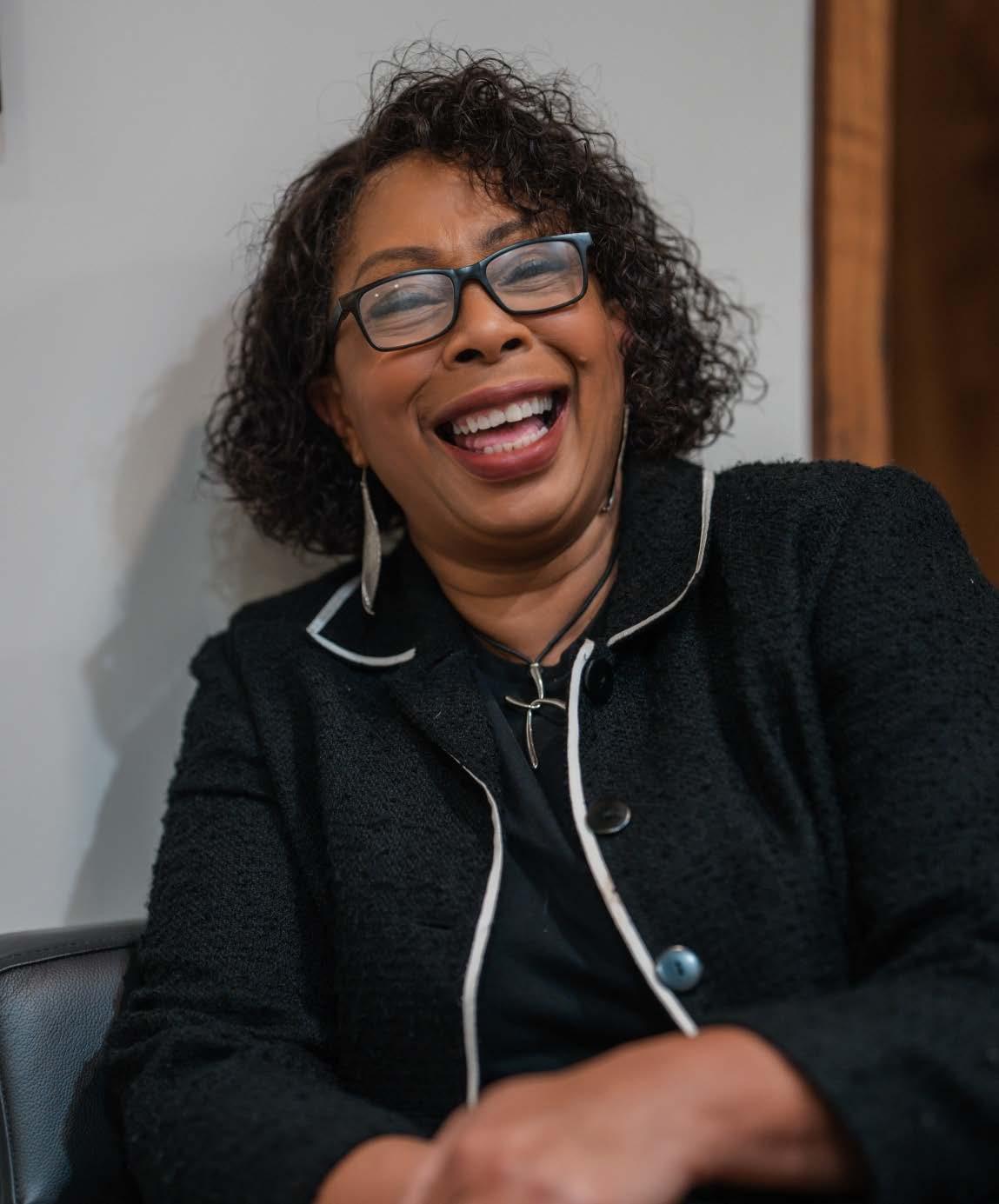
Visit www.pearljarrett.com/gspa
THE LEADER PROMOTING CHURCH UNITY
Bishop Mike Royal talks about his life and work highlights, and how faith in God can help individuals overcome major life challenges, fulfil His purposes and be a credit to society.
Bishop Royal is one of four children, born to Jamaican parents who arrived here in the UK in the late 1950s. Converted at 14, by his late teens Bishop Royal had lost both his parents. However, he completed his university education, became a church elder at 19, and by the age of 25 was married and a pastor of a church.
Fast forward to 2024, Bishop Royal is currently one of the most high-profile Black church leaders in Britain, via his role as General Secretary of Churches Together in England (CTE). Keep The Faith spoke to Bishop Royal about his life, work and ministry.
KEEP THE FAITH (KTF): You have enjoyed great success in your work and ministry; however, did you ever imagine that in your role as General Secretary of CTE you’d one day play a part in the Coronation of the King of England? How did you find the experience?
BISHOP MIKE ROYAL (BMR): Never in my wildest dreams! Never did I think I would be asked to read a blessing alongside five other senior church leaders at the Coronation of His Majesty King Charles III.
I feel deeply privileged to have represented the many church traditions which were not directly represented that day at the Coronation. What blesses me most are the many people who have messaged or spoken to me to say: “I felt represented by you being there.” When you think that, in 1953, even the Roman Catholic Cardinal was not allowed to be part of the Coronation… How far we have come! Of course, the majesty of the occasion at Westminster Abbey is something I will never forget.
KTF: Anyone following your social media account can see that you are always out, meeting people, speaking, etc, but what exactly does your work at CTE entail?
BMR: Churches Together in England brings together 54 church denominations – from the Anglican, Catholic, Free Church, Quaker, Lutheran, Orthodox, Pentecostal and Charismatic traditions – to work together in unity. Connecting with those denominations and being involved
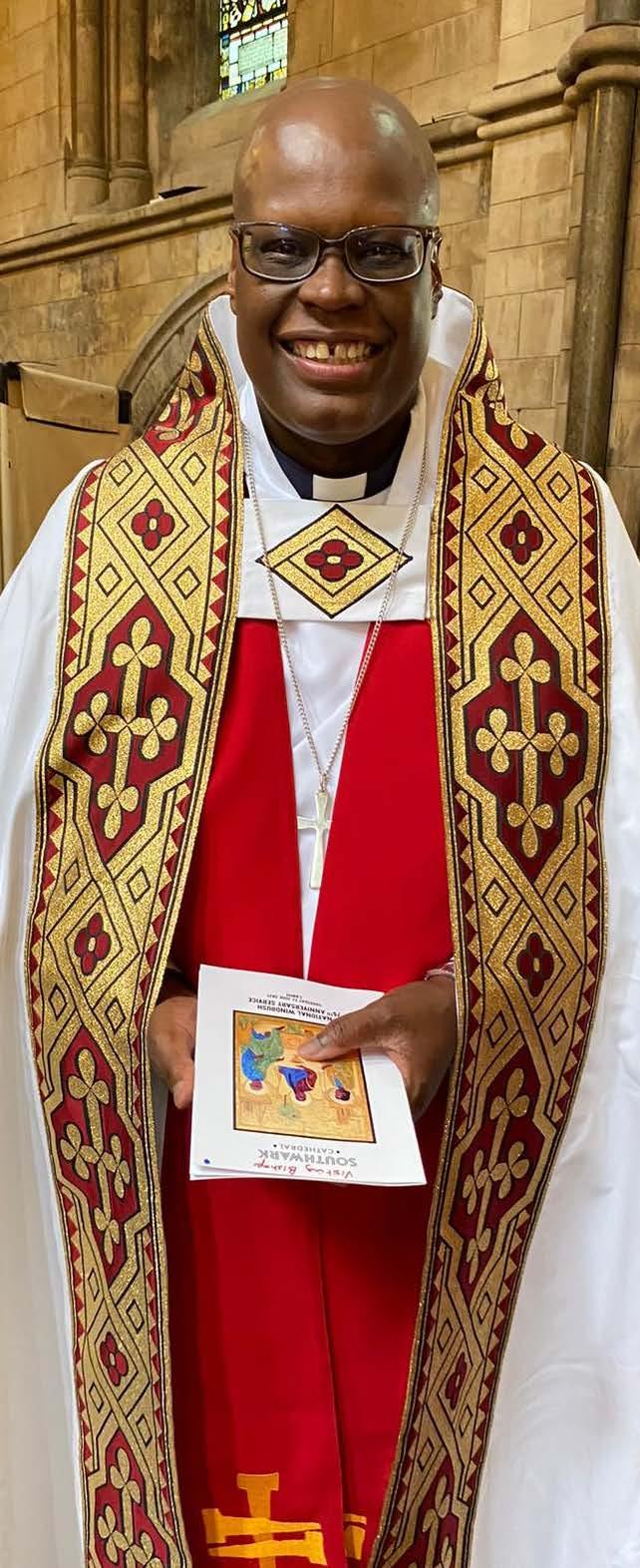
18 Find us on X and Facebook: @KeepTheFaithmag
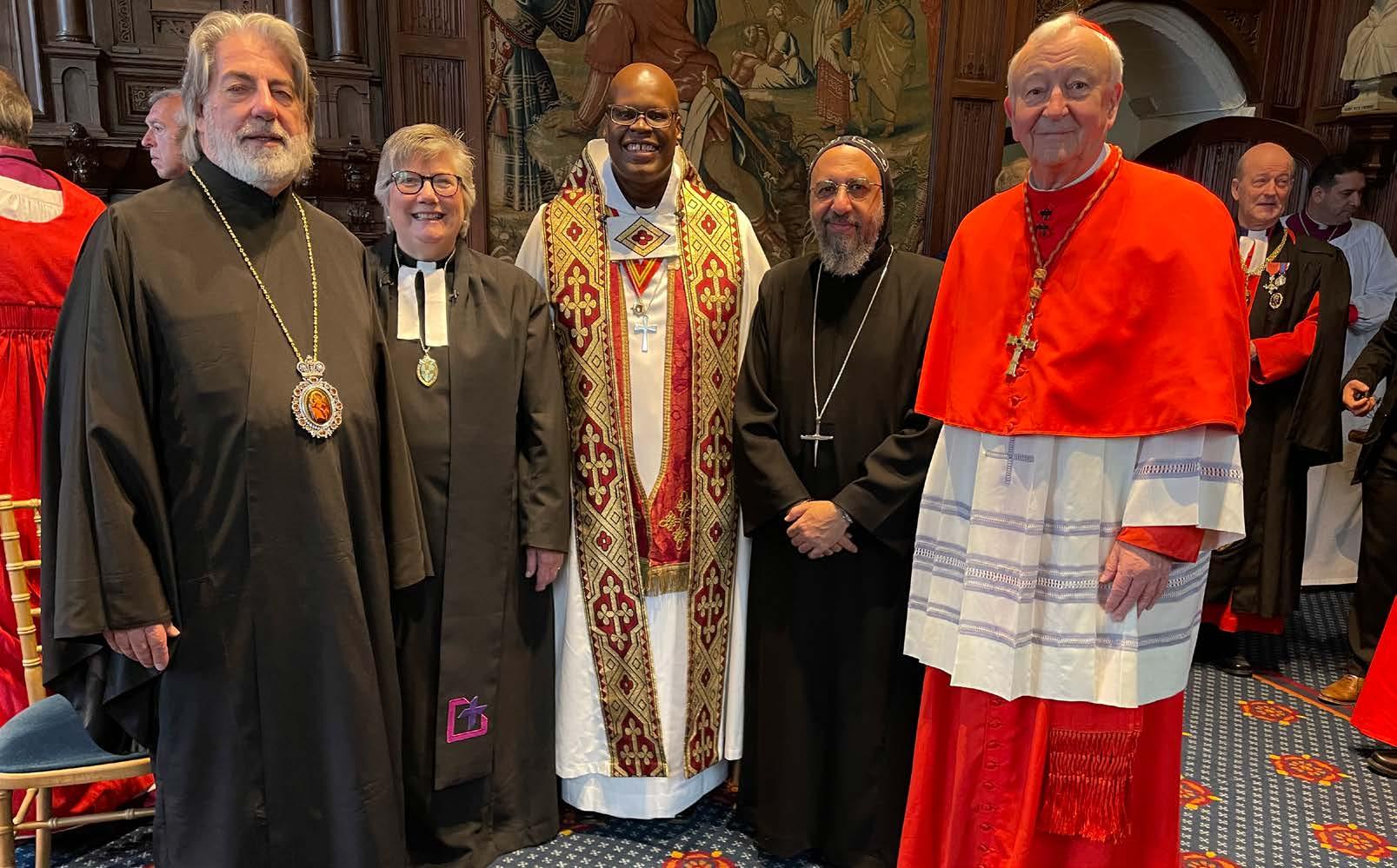
in interdenominational dialogue is an important part of my work. We also have county- and city-based Churches Together bodies to support, as well as the numerous local Churches Together groups dotted around the country. Visiting and speaking at their meetings is hugely important too. I lead a team of seven people, who also work together with the churches on dialogue around mission and evangelism, training ecumenical officers, coordinating meetings between national member churches and convening roundtables, for example: for the CTE Pentecostal and Charismatic Leaders Forum. The work is relentless but hugely rewarding.
KTF: Since becoming CTE General Secretary, what have been the three stand-out moments in your work?
BMR: The Windrush celebrations at Southwark Cathedral in London and at the New Testament Church of God in Handsworth, Birmingham, in June 2023 were a huge highlight. Speaking at the Baptist Assembly in Summer 2023 was a great privilege, too, and finally, building closer ties with the Orthodox churches have been a significant highpoint for me.
KTF: In the past, the Black Pentecostal Church in the UK showed little interest in ecumenicism; however, this is changing. How does this change benefit the Christian community as a whole?
BMR: We owe a huge debt to some Black Pentecostal pioneers in the ecumenical space. Rev Pemberton from the Wesleyan Holiness Church served as one of the CTE Presidents way back in the early 1990s. Bishop Dr Esme Beswick MBE along with others were all involved in the early days of Churches Together in England. Bishop Dr Joe Aldred (Church of God of Prophecy) made a huge contribution in growing the membership of
Pentecostal churches within CTE, working alongside CTE Presidents Pastor Agu Irukwu (Redeemed Christian Church of God) and more recently Bishop Tedroy Powell (Church of God of Prophecy).
I think Pentecostal churches have realised the value of being at the table and that if you’re not at the table then you really can’t make a contribution. I think there is far more understanding from the historic churches of the need to engage with this growing phenomenon which is Pentecostalism. There is still a long way to go, but there is more inclusion of Pentecostal churches at every level of ecumenism now than ever before.
KTF: According to the 2021 census, just 46.2% (27 million) of Brits describe themselves as Christians, compared to 59.3% (33.3 million) in 2011. What steps do churches need to employ to win the nation back to God?
BMR: I think the census statistics only tell
part of the story. There is huge growth amongst many of the global majority churches, whose members have migrated to the UK over the last decade or so. The Orthodox churches are growing, and Catholic churches have seen an increase in members from Eastern Europe. Key is the intercultural engagement of existing churches with these new communities. The sharing of buildings is now incumbent upon all congregations who are blessed with buildings, including long-established Pentecostal churches.
Finally, well-organised street evangelism is key, and where we are delivering social action activities in our communities we take the opportunity to appropriately share our faith as the opportunity arises. But remember, people need to know that you care before they are interested in caring about what you know!
KTF: You are a Londoner, now living in Birmingham. Can you share a little bit about your childhood, your parents and siblings and the role of faith in your life whilst growing up?
BMR: I grew up in the suburbs of London, in Purley, Surrey. My father was a Deputy Head Teacher, and my mother was a homemaker. I had two sisters – one older and one younger. Education was important to my parents. We all went to university. We spent happy summers playing on Riddlesdown Common. We grew up attending the Apostolic church in Wallington, but I also attended our local Anglican church, St James’s Riddlesdown for cubs/scouts parade once a month. I guess that was my first ecumenical encounter outside of Pentecostalism. I came to faith at 14 years old.
It was the moment I grasped faith for myself rather than piggybacking on the faith of my parents. My parents passed away from cancer in my late teens so my personal faith in the Lord Jesus has been the rock I have stood on from those formative years.
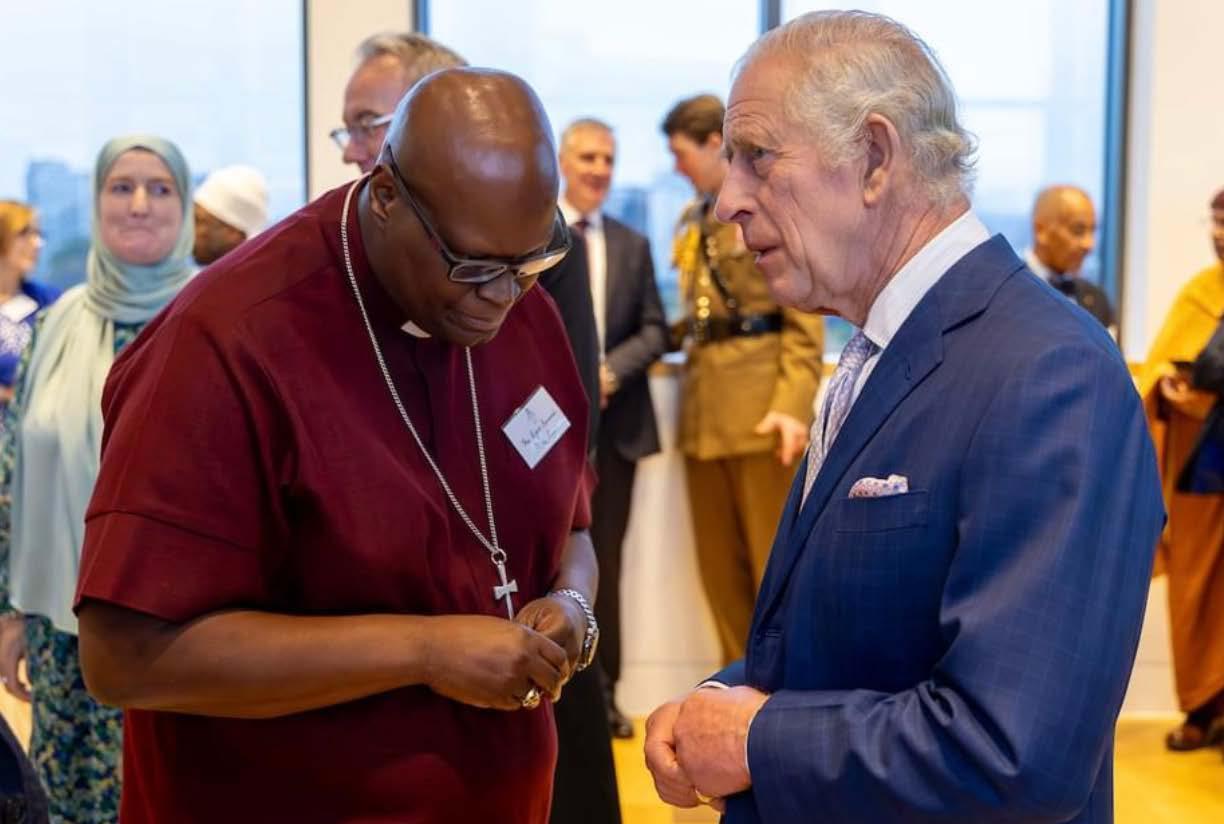
KTF: We all have our own unique story of how we became a Christian. What is yours and how has being a Christian impacted your life?
BMR: On reflection, there were many moments in my childhood where I committed my life to God in prayer. But it wasn’t until I was 14 years old that I fully understood God’s saving grace and love. My life was going astray; I was mixing with the wrong crowd; and I could see where this would lead me. When I attended convention one summer in Wales, the altar call was given, and I gave my heart to Jesus – on 31 July 1982. My life didn’t change overnight, but God gave me the strength to pull myself away from negative influences and build courage in me to be open about my new-found faith in Jesus with my friends. The rest is history, as they say!
KTF: When did you receive the call to the ministry, and how did your pursue that call?
BMR: I began training as an elder at 19 years old; became an elder at 21 years old; and became the leading elder of church at 22 years old. I was called into the pastorate and ordained at 25 years old, and moved from London to West Yorkshire in 1993, having been married to Viviene for only 11 months. Those were massive faith steps, but God was faithful. We were both on the path to successful careers; had just bought our first house, but we said to ourselves that there were a lot of reasons to say no to this but they didn’t add up. So we decided to respond to the will of God for our lives, and we’ve never regretted that decision once. God is faithful.
KTF: You’ve held various roles, including being Founder/Trustee and National Director of Transforming Lives for Good; Co-CEO of social action organisation Cinnamon Network; and a mental health chaplain. Why is it important for Christians to be involved in social action?
BMR: One of my favourite verses of Scripture is Micah 6:8 – ‘To act justly and to love mercy and to walk humbly with your God.’ Establishing and leading the Birmingham Street Pastors team, from 2004 to 2008, showed me how the Church can be a force for good on our streets for vulnerable people in our community. Being National Director of TLG between 2005 and 2016 brought me closer to the needs of young people who had been excluded from school. We realised the Church was well-placed to meet those needs, and so I led the roll-out of over 12 alternative provision schools in England. That period of my ministry gave me the most pride. Being Co-CEO of Cinnamon Network enabled us to replicate models of best practice for community engagement and transformation with churches in the UK.
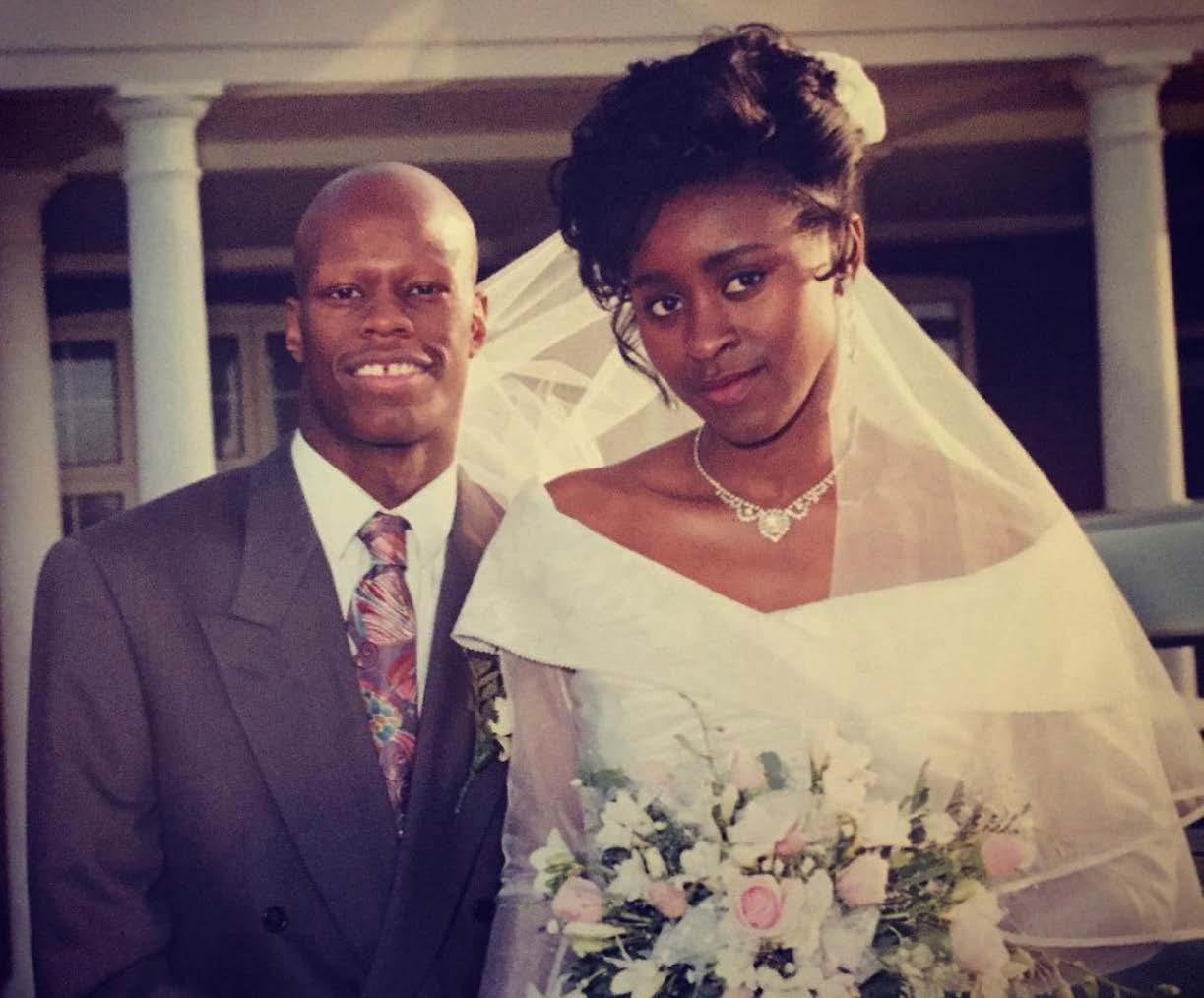
I always say that when people are in need, they are not queuing outside the council looking for help, they will often visit our Foodbanks, Warm Hubs and Debt Counselling Services that so many churches run these days. We have to be willing to meet people’s practical needs alongside their spiritual needs.
KTF: It’s evident from your social media posts, you and your wife Viviene are deeply in love. How did you meet and how do you support each other’s ministries?
BMR: Viviene was part of a house group that I helped lead. I used to walk her home after house group to make sure she was safe. We got to know each other, started dating in 1988 and got married in 1992. Viviene is of Ghanaian heritage while I’m of Jamaican heritage, so we have enriched each other through our cultural backgrounds. I support Viviene in running two alternative education schools, while she supports me when I am ministering at different churches. We both support each other in ministries we are committed to in Ghana. We love each other
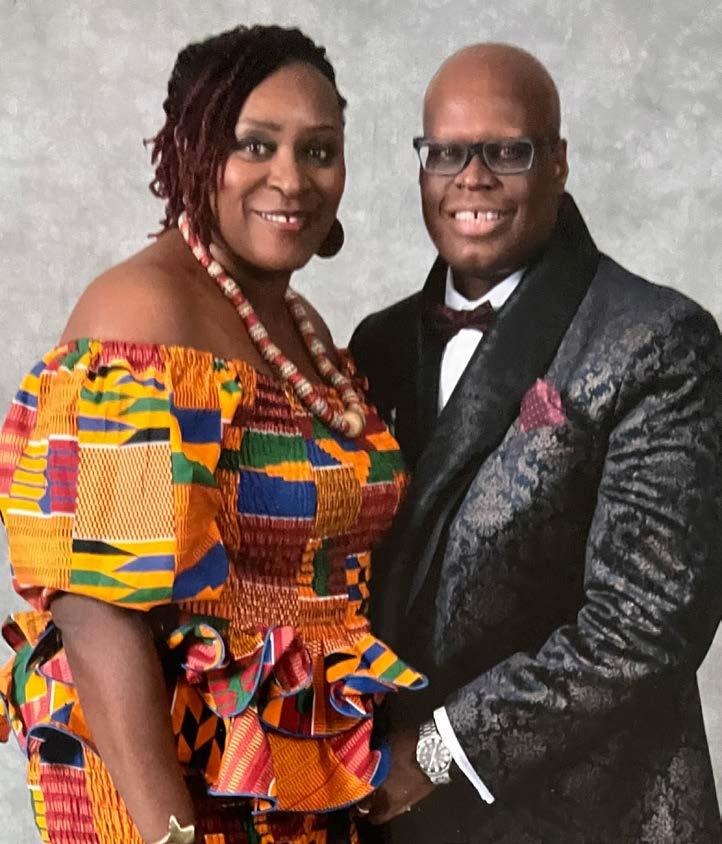
deeply and are both committed to seeing other’s bone and flesh of each other’s flesh. each other thrive. We are bone of each Marital union is much deeper than people imagine. As the Bible says, it’s a mystery. We often find ourselves thinking the same stuff at the same time independently. That’s deep!
KTF: What exciting things can we expect from you in 2024?
BMR: We will be planning towards a Churches Together in England Forum, scheduled to take place in March 2025 which will bring together 350 leaders from across our 54 member churches. CTE will deliver a conference for young ecumenical leaders. We are committed to raising a generation of young leaders by offering grants through the Bill Snelson Young Ecumenist Fund (named after a former General Secretary). Of course, as General Secretary of CTE, I will continue to build our relationships with and between our National Church Members and facilitate the growing group of nearly 100 Charities and Networks in Association linked to CTE and committed to work in partnership with member churches.
KTF: And lastly, what message of hope would you like to share with readers of Keep the Faith?
BMR: I think in the post-pandemic world, the Church is at the beginning of a new chapter. We will see huge change in the demographic make-up of the Church in the next few years in the UK. Lean into it, engage with it, the Church in all its diversity, with people across the Global Majority world. God is doing a new thing. Don’t stay in your silo, be influenced by other church streams, it will enrich your lives and bless your own congregations.
20 Find us on X and Facebook: @KeepTheFaithmag

Chief Executive
For over 100 years, UCCF has equipped and empowered students to discover Jesus and live for Him on campus. We are passionate about students reaching students with the good news of Jesus. We remain confident in the truth, urgent in evangelism, passionate about unity, motivated by grace, committed to the local church and generous in world mission.
Reporting to the Board Chair and Oxford/hybrid located, you will collaboratively develop, articulate and implement a clear strategic vision as we seek to increase our impact and reach.
Leading the Executive Team, you will be a key custodian of our culture and act as our public face, inspiring others to share UCCF’s goals. This includes partnering with evangelical churches across diverse traditions.
You will be a servant leader with a strategic mindset and a heart for students to be won for Christ. Your experience has equipped you to lead an organisation of 130 colleagues, oversee UCCF’s programmes and rise to the challenge of securing £5m p.a. of income. Theologically formed, you will evidence the credibility to engage with a wide range of stakeholders.
To express interest, please contact mark.childs@cayenneconsulting.co.uk

Do you want support to: RAISE awareness of your initiatives? BUILD your personal brand?
SELL-OUT your online and in-person events? GET media coverage

If your answer is yes contact Marcia Dixon Public Relations
We can help you communicate who you are and what you do to your target audience
Email
or

www.keepthefaith.co.uk 21
hello@marciadixonpr.co.uk
www.uccf.org.uk phone 07877 395955 for more details
ARE YOU A WOMAN IN MINISTRY OR BUSINESS?
FAILURE IS NOT FINAL
Bishop Jonathan Jackson shares guidelines on why and how the Church can restore fallen ministers

The weight of church leadership is now more intense and pressurising than ever before. The result is the significant number of ministers who have fallen from grace. It is interesting to note there are YouTubers racking up higher views than ever, when their subject matter is about a major scandal involving prominent church leaders.
Sadly, more energy is given to the scandal than to the restoration process. So, the question to be asked is: ‘What should our response be as Christians, and how should churches respond in a biblical way to bring restitution to fallen leaders?’
A rumour mill is not the evidence that should fuel conversation in the life of the church. An honest report with evidence should be the start of prayerful response to a fallen minister. (See 1 Corinthians 5:1–5, 11:18; 3 John 9–14.)
As senior leaders, we face challenges when dealing with real-life cases of ministers falling from grace and others being falsely accused. When dealing with such cases we must consider the spiritual health of the victim, the congregation, and the accused’s family. And, in these modern times, we now have to consider employment laws when dealing with a minister who is also an employee of the church.
Examining and speaking about specific cases is dangerous when you are in ministry; however, there are incidents that have been played out in the public arena which highlight the issues that arise when ministers fall.
Ministry failure
Many of us respected the ministry of Bishop Eddie Long and the success of his mega church, New Birth. However, when rumours became reality, and resulted in four young
men suing him for sexual misconduct, Eddie Long’s church circled the wagons to protect him, ignoring the victims. It seemed there was no system of church discipline outside of his own leadership team, therefore no discipline or restoration process was enacted. The idea of paying settlements in court to compensate the victims is far removed from biblical repentance and restoration. To the hurt of the wider church, we have learned to be a more balanced church, seeing and taking note of the victim’s pain first, and not so lely acting to save the reputation of the minister and the ministry.
There’s also the case of Pastor Carl Lentz, celebrity pastor and former spiritual advisor to Justin Bieber. The church culture around him created a toxic environment. The wider organisation had to act when rumours became reports and complaints, and when victims came forward. He was dismissed for moral failures, and he also admitted to unfaithfulness in his marriage. The lack of remorse and deception left no room for a process of restoration, and the congregation had to go through a process of changing leadership and a time of healing.
Restoration after moral failure
The Bible makes it clear there can be restoration after moral failing, and it records how God restored King David (2 Samuel 11–12). In an idle moment, King David saw Bathsheba, bathing on the roof top. She was the wife of Uriah, one of his top soldiers. Overcome with lust, King David summoned members of his court to bring her to him and he had sex with her.
When King David learnt Bathsheba was pregnant with his child, he developed a plan to cover his initial sin, which led to Uriah’s
death on the battlefield.
King David eventually had to take responsibility for his personal actions and the further iniquity of all the other people in his court whom he had made complicit to his sin when he was confronted about his behaviour. His life clearly demonstrates the impact sinful behaviour can have when you are in leadership. In this case, through the prophet Nathan, God gave David a pathway of repentance, but not without major consequence.

Biblical models for restoration
Jesus provides a model for restoration in Matthew 18:15-17 which focuses on how personal disputes amongst Christians can be resolved. The church must rebuke and restore, knowing that both are part of the same process of spiritual healing.
The restoring of Peter after his betrayal and abandonment of the mission is a masterclass of healing (John 21:15-19).
And the apostle Paul provided his young leader and mentee Timothy with a model that creates an accountability circle for handling accusations against leadership in an impartial way.
‘Against an elder receive not an accusation,
22 Find us on X and Facebook: @KeepTheFaithmag
but before two or three witnesses. Them that sin rebuke before all, that others also may fear. I charge thee before God, and the Lord Jesus Christ, and the elect angels, that thou observe these things without preferring one before another, doing nothing by partiality’ (1 Timothy 5:19-21).
‘Brethren, if a man be overtaken in a fault, ye which are spiritual, restore such an one in the spirit of meekness; considering thyself, lest thou also be tempted’ (Galatians 6:1).
The end goal of any church disciplinary process must be one of restoration to faithful Christian living.
It is vital that churches exercise wisdom in giving space for the healing process of time to run its course, and for the thinking and ministry action of the person to be refreshed. This builds confidence in the congregation that the necessary lessons have been learned. The length of time is determined by the process adopted by the local church and must reflect its ability to rebuke and restore, as guided by the biblical example given.
Dealing with senior ministers
When a minister has fallen it is essential that a restorative team, a trusted elder, or bishop is responsible for the restoration process.
Criticisms come in thick and fast whenever







‘fallen’ ministers create a group of people over whom they have major influence. These people then collude with decisions that favour the individual and don’t take into consideration the victim (or victims), or the bad example of his (or her) sinful behaviour.
The idea of restoration and godly forgiveness must be one that considers the calling of that individual and the circumstances that surrounded the fall from grace.
In cases of abuse, the law would determine the levels of participation and location of ministry. In the case of a senior minister falling from grace in office, after a time of repentance, discipline and restoration, a new ministry chapter can begin in a new location.
While we would love to leave everything to good conscience and conviction, the wisdom of church governance is priceless.
In my personal view, the greater the calling and covenant the individual or minister has with God, the greater the humility to be demonstrated. When you examine the lifestyle of the serial perpetrator it follows a deadly pattern of arrogance and pride which have an expected end.
The example of repentance must be seen by the wider church, so that sin is not viewed as an acceptable way of life for a Christian leader or church member. A part of any church’s
life must be the action of church discipline.
This is quite essential for maintaining the purity of doctrine and for guarding the holiness of the sacraments. Churches that are lax in discipline are bound to discover sooner or later within their circle an eclipse of the light of the truth and an abuse of that which is holy. Hence a Church that would remain true to her ideal in the measure in which this is possible on earth, must be diligent and conscientious in the exercise of Christian discipline. The Word of God insists on proper discipline in the Church of Christ (Matthew 18:18; 1 Corinthians 5:1-5, 13; 14:33, 40; Revelation 2:14, 15, 20).
Berkhof, Systematic Theology, p578
The final say is ultimately with God and how He sees the whole picture of the life of the person who falls.
‘For a just man falleth seven times, and riseth up again: but the wicked shall fall into mischief.’ (Proverbs 24:16)
Failure is not final.
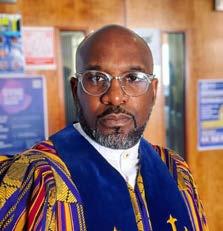













www.keepthefaith.co.uk 23
It’s Your Move helps children take the giant step from primary to secondary school, with stories and tips from recent leavers, teachers and schools workers. These great, little books also feature reflections on how the Christian faith can help at this daunting time, making them the perfect gift for children in Year 6. A survival guide and journal to help children adapt to a new school. Top tips and stories from children who have already made the move Over 2 million children already helped to settle into their new school through this series Advice and space to reflect, alongside helpful Bible references Order from Scripture Union: visit su.org.uk/IYM or call 01908 856000 Save £4.00 on packs of 10 using code IYMSV24 before 31 May 2024 £21 £25.00 SAVER DEAL! Pack of 10 for:
of Agreement: Understanding Covenant Theology
Bishop J Jackson DD is Senior Minister and District Bishop at Willesden New Testament Church of God. He is
author of The Power
ROYAL GOSPEL CHOIR CELEBRATES 30THANNIVERSARY
BY JULIET FLETCHER
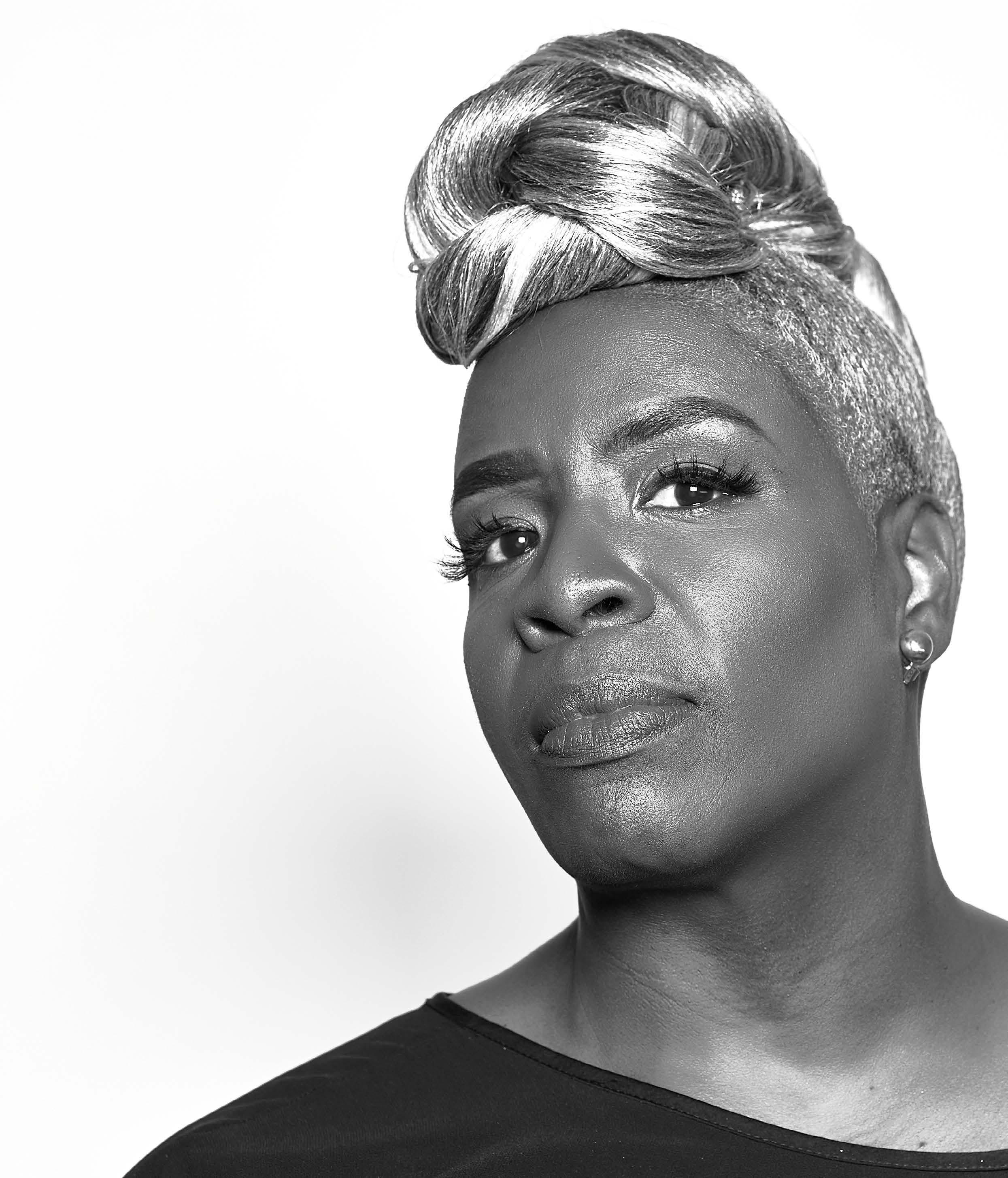
I was working for the BBC’s Religion and Ethics Department when Noel Robinson introduced me to a relatively unknown Karen Gibson. Thirty years on, I’m interviewing Karen, Founder/Director of the Kingdom Choir, awarded an MBE (2020 Queen’s Birthday Honours), fondly referred to as ‘the Godmother of British Gospel’ and known to millions. In this conversational exchange, I hope to bring readers closer to this icon-spirited person, favoured as an ambassador of our music today.
Juliet Fletcher (JF): Who inspired the start of your singing journey? Your parents?
Karen Gibson (KG): No, not particularly. But I think my father played in a steel band group. Both he and my mum loved music. However, singing is not where I started. My mother was the catalyst for me and my sister, Kim, to take up musical instruments.
JF: What of your other siblings? Are they musical?
KG: No, they’re not. My three older siblings live in the US, but my sister Kim and I live here.
JF: Tell us more.
THE CLASSICAL YEARS
KG: As life went along, my mum became a single parent. She was a staunch member of the Church of God of Prophecy (COGOP), Tooting branch, now known as Lynwood Christian Fellowship. Mum was amazing then – working three jobs at a time. I was around 10, Kim nine. We were often left alone and Mum decided to preoccupy us with a toy piano. We became sort of obsessed with it. Mum noticed how we picked out tunes and sent us to piano lessons. At the time we thought it was because Mum saw us as quite precocious and clever (soft laughter) but later we learned it was because she wanted to keep us out of ‘trouble’. It worked!
JF: Did this spark your interest in singing at church?
KG: Not at all! Mine and Kim’s focus was on playing instruments. It truly works to encourage our young people to play instruments at an early age. At that time my piano teacher, Debbie Dunne, felt that Kim and I should take up a second instrument. This quest coincided with a friendship group comprising three of our dearest church sisters: Collette Blythe, and two sisters Elaine and Sharon Lobban. We played as an instrumental quintet group called Windsong. It was a deeply bonding time between us all.
24

JF: There seems to be a deep bonding between the Kingdom Choir members today, too.
KG: There is, and it is like a family. Most of the 40 members I have known over many years. Normally we perform as 30 and I’m very privileged to lead them.
JF: So, what made you move from playing musical instruments in Windsong to that which you’d previously steered clear of – singing? I’m sure nobody would believe there was a time when you didn’t like singing!
KG: Let me explain: What I heard – particularly in COGOP groups of the time (mid to late 1970s) – I definitely felt “I don’t want to do that.” I feel terrible saying this, but it was the truth. I had an in-built natural standard and what I was hearing then wasn’t it. However, thinking back, this focus on instrumentation and classical music was very important to what we’re doing now.
THE SWITCH: PLAYING TO SINGING
KG: I can pinpoint when my whole interest switched. It happened when I heard The Winans Brothers – their first album.
JF: That would have been around 1981.
Introducing The Winans was released on Light Records, produced by Andraé Crouch.
KG: Yes, the first track on that is The Question Is. And what instrument is playing in the intro?
Answer: the oboe, which I played. So, I learned that piece and somehow together we decided to learn the song – and found we naturally harmonised. By then we were joined by Carol Frith, who became my stepsister. We found a name: New Dawn. My love for ‘voice’ grew, and using instruments fizzled out as we remained with our singing.
JF: On that note, it makes me think how incredible our churches are. So much talent and creativity. Such a nurturing ground.
KG: Noel Robinson, who was COGOP National Music Director, was intrinsic to our elevation. He spotted our natural talents and gave our gifts room to blossom.
JF: Noel is very special. He really is a ‘Prince’ of gospel music.
KG: I’ll also tell you why Noel is special: because he has mentored so many people. And he does this without fanfare and seeking recognition. He has helped so many.
JF: How do you see the standard of choir leadership across the country now?
KG: That’s hard to quantify and answer. I think our choirs have been impacted by the growth of praise and worship teams. It’s really reduced the quality.
THE KINGDOM CHOIR IN ENTERTAINMENT
JF: Where would you position the Kingdom Choir? Is it fair to

say the Kingdom Choir is an entertainment choir? The Church doesn’t seem to understand the role of entertainment in everyday life. What would you say?
KG: While we don’t label ourselves an ‘entertainment’ choir, our performances do entertain audiences. Our approach aligns with Jesus’ use of parables, illustrating heavenly concepts with earthly examples. Initially apprehensive about touring America, the birthplace of gospel music, I received divine reassurance: “It’s in your delivery and in your expectation.”

JF: Stick a pin. Let’s quickly look at your music ministry highlights.
Following singing at Prince Harry & Meghan’s wedding, you have:
• toured the UK and are set to tour again
• toured the US twice – and are set to repeat that – within five years. It will be a first for a UK choir
www.keepthefaith.co.uk 25
• performed at the Invictus Games closing ceremony in Australia
• had sell-out shows at the Royal Albert Hall and Royal Festival Hall
Then you, Karen:
• have starred in an array of top BBC shows, like MasterChef, Last Choir Standing, and hosted radio shows, for example on Scala Radio
JF: Do you think people’s view of choirs has changed, then, from the handclapping feet stomping stereotype view?
KG: I think so. None of them/us are perfect, but most are making a mark. People see the sincerity in the Kingdom Choir’s singing, even singing songs without any explicit mention of the Lord. Many sought prayers nightly on our tours. One troubled man sought forgiveness for past actions against women, while a woman shared her trauma tied to a song we sang. Her healing surprised us, as we didn’t know her story beforehand. Had I been aware, I would’ve reconsidered including the song. Yet, our rendition brought her release from a memory of sexual abuse.
JF: Powerful! Wonderful!
LOOKS AND STYLING
JF: As soon as we see the Kingdom Choir, we know who you all are. How do you feel about your personal style as well as how the choir looks?
KG: I’m appreciative of the fact that we have a look, a style, a branding. I wanted to represent. I wanted us to turn out well. So I secured Jeanette Young, a fashion designer and stylist,
for the Royal wedding performance. For me, I haven’t had anyone in management say: “You can’t stay with that hairstyle.” I like the style. I’m not wearing my hair like this because of the brand. I wear it because it’s so easy. I go to bed at night, tied. Then in the morning – quick and easy, and I’m ready for the day! (Laughter)
JF: Do the choir members find it difficult?
KG: We want to look beautiful. We want to look branded. None of the choir members complain.
JF: Are you now distanced from the Royal wedding association?
KG: I think most people just see us and our singing. The association with the Royal wedding will never go away. There are over two billion views on film! The main thing for people is that they love the choir’s authenticity, sound and look.
30 YEARS AND THE FUTURE
JF: Are you OK with the Kingdom Choir being identified as a Black Gospel choir?
KG: We have members who are not Black in terms of skin hue. But I am quite comfortable with being identified as a Black Gospel choir. It’s our roots, our cultural identity.
JF: How does 30 years feel to you?
KG: (Laughter) It makes me feel old! I never thought it would be this way. This whole journey, from Mum wanting us to keep out of trouble to us right now… The 30 years, therefore, have not just been about the Kingdom Choir’s success; it’s about every step of the way leading to here and now.
JF: You’ve announced The Kingdom Choir Foundation. What will it do?
KG: The foundation will do exactly what I have seen gospel music do over the years in people’s lives, particularly young people. There is scientific evidence of how singing and music affect and transform in every age range. This is simply what we believe we should do.
You can’t legislate what Holy Spirit will do with the music. My business is to deliver this music to the listeners; for them to sing, for them to experience this music and have encounters; for them to know about this kind, Father God; and for them to be moved by the music and for the lyrics to resonate within them.
I have heard it said only Christians should sing gospel, but I have repeatedly experienced children fully changed. Even those in prisons, the trajectory of their lives has changed. I will not presume anything.
The Kingdom Choir will be performing a second 30th anniversary concert at the Barbican Centre, London, on Monday 27 May ’24.
Visit www.kingdomchoir.com
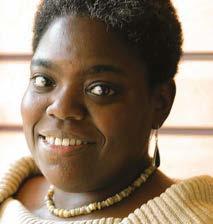
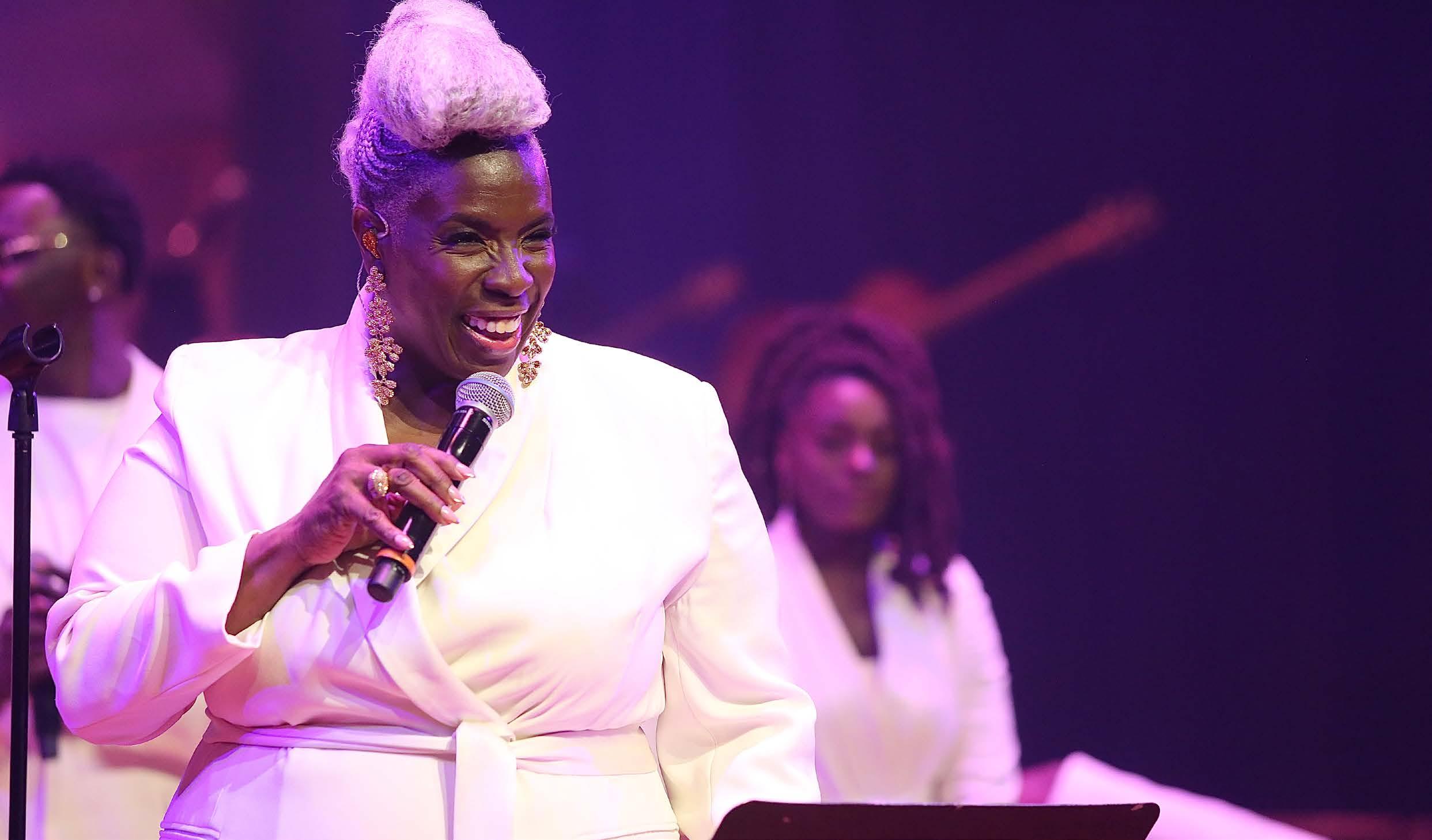
“While we don’t label ourselves an ‘entertainment’ choir, our performances do entertain audiences. Our approach aligns with Jesus’ use of parables, illustrating heavenly concepts with earthly examples.”
Juliet Fletcher is the Creative Director of Green Tree Productions and Windrush Church and Music. She is also the founder of the Gospel Music Industry Alliance.


YOU TO HOST A
“HEALTH BELIEF”
SESSION

RAFFA would like your assistance in a 30-60-minute segment during your Sunday Services. The sessions look at our health beliefs supported by scripture, raise awareness of the support needed by our community and share information from the NHS on how we can support our community.



RAFFA would like also to use this opportunity to invite members who have given blood or received blood to share their story through our documentary series - ‘Sharing UK Stories: Blood/Organ Donation’.
#blooddonation
6 Beacon Court, Birmingham Road, Great Barr, Birmingham B43 6NN 0800 029 1633 RAFFA INTERNATIONAL DEVELOPMENT AGENCY
INVITES
#RAFFAProjects
In partnership with

FOOD THOUGHT
BY MARCIA DIXON MBE
The power of the Gospel
Easter holds a special place in the hearts of Christians – particularly those whose personal and collective histories have elements of major and prolonged suffering. This is one of the reasons why Jesus’ sacrifice – of dying on the cross to save the world from their sins –resonates strongly with Black folk.
There’s something deeply empowering, serving a Saviour who can relate to human suffering (Hebrews 2:5-18). Conversely, it’s inspiring to know that Jesus was willing to sacrifice His life, so that individuals could experience God’s gift of salvation and live out their God-given purpose.
Black people have the highest rates of church attendance across the world. However, it’s evident that living in the West is causing a growing number of people within the Black community to lose faith in God, and to challenge the veracity of the Scriptures. And, just like how young Black folk (some) in the ’80s and ’90s believed Christianity to be a “white man’s religion”, that viewpoint remains alive and well amongst today’s young adults – a view heightened by the Black Lives Matter protests of 2020.
Whilst the reasons for such thinking are understandable – the enslavement and colonialism of Black people is a key cause – a deep dive into Christian history would show that this is not the case. Christianity/the Church was founded on the day of Pentecost, when the Holy Ghost fell in the Upper Room and the apostle Peter preached the first gospel sermon in Jerusalem, leading to the conversion of 3,000 people (Acts 2). During the early centuries of Christianity’s growth, it spread to countries in the Roman Empire, Asia Minor and North Africa. Acts 8 has the story
of how the apostle Philip baptised the Ethiopian eunuch who then took the faith back to his country.
Further exploration of Christianity would highlight the inherent power of the Scriptures in bringing about social change and transformation – a fact highlighted by the revelation in 2017 that missionaries who went to the West Indies produced a Bible entitled The Negro Bible: Select Parts of the Holy Bible, Selected for the use of the Negro Slaves, in the British West-India Islands, also known as the Slave Bible
It had just 232 chapters (compared to the 1189 chapters in a normal Bible) and 90% of the Old Testament and 50% of the New Testament were missing. This ‘bible’ was created so that slave owners would allow the missionaries to preach a watered-down version of Christianity that wouldn’t upset the social order.
Doesn’t this highlight how powerful Christianity is? It’s a faith that inspires both personal and social change because inherent within it are themes of justice, freedom, liberty and equality – concepts that are anathema to those who want to stifle the human spirit and treat others as less than human.
We need to remind ourselves that some of the enslaved were inspired by Scripture to fight for freedom and justice. And that struggle continues today.
So, as we approach this special time in the Christian calendar, let’s be mindful of the ripple effect this miraculous act – of Jesus dying on the cross and being raised from the dead – has had on our community throughout the centuries and continues to have. It’s a faith that brings about personal and societal transformation.

THE ART OF BEING CONTENT

We live in a world where we are constantly encouraged to set and pursue goals – whether for our personal or for our professional lives.
In doing so, it’s always good to remember that whilst there is nothing wrong with having ambition, the Bible warns against selfish ambition (James 3:16) as it can cause disorder and motivate people to act in sinful ways.
Ambition entails having a strong desire to achieve or do something, and often necessitates wanting more either for ourselves or our families – whether it’s finance, influence, new experiences, etc – but we must make sure our desire for more doesn’t draw us into a sinful lifestyle or attitude, and that our desires are aligned with God’s purposes for our life, our work and our mission.
One of the antidotes to selfish ambition and greed is contentment. It’s where we learn to be happy and satisfied with what we have. Hebrews 13:5 states that believers must ‘keep your lives free from the love of money and be content with what you have, because God has said, “Never will I leave you; never will I forsake you.”’
IMHO, being content doesn’t mean we stop dreaming, aspiring or desiring greater for ourselves, our families or our community. Rather, it means that, as we move forward and seek to accomplish our goals, we allow ourselves to be at peace and at ease with where we are in the now, whilst knowing we are on a journey of moving forward and working towards our God-given ambitions.
We should also be mindful that God is with us, whether we achieve our goals or not. And the most important thing we can do is to keep our eyes continually on Him and make Him the centre of our lives.
28 Find us on X and Facebook: @KeepTheFaithmag marciadixonpr.co.uk marciadixonpr Marcia-Dixon-Public-Relations 4
CONSTANTINE OR CHRIST?
Gary Clayton , a Jewish believer in Jesus, looks at how the Jewish Passover eventually became the Christian Easter
It’ll soon be chocolate eggs, chicks and bunnies time and, before we know it, we’ll be thinking about what we in the UK know as ‘Easter’ – the festival Jesus and His disciples celebrated some 2,000 years ago as Pesach, the Jewish Passover mentioned in all four Gospels.
But why do Easter and Passover, which celebrates how God miraculously rescued His ancient people from slavery in Egypt, both exist – though on different dates?
The reason, sadly, has something to do with anti-Semitism and the Church’s departure from its original roots.
Although nearly all the early disciples, apostles, and New Testament writers were Jewish, in time the Church gradually became almost completely Gentile – changing dramatically as a result.
There’s a heart-rending joke which helpfully sums up the way many Gentile Christians later regarded the Jews. It not only illustrates the Jewish attitude to conversion but demonstrates the way Jewish converts tended to adopt Gentile attitudes towards their former brethren.
The joke involves two Jewish men in tsarist Russia, who see a sign saying, ‘Convert and we’ll give you ten roubles.’
One of them says to the other: “You know what? I haven’t eaten for ages – I’ll do it.”
A little later, he emerges from the church. “Well,” says his friend, “did you do it? Did they give you ten roubles?”
The new convert looks at his friend and replies contemptuously: “Why is it you people only ever think about money?”
The joke shows that, for many Gentiles, the Jews were seen as a Judas people – a race willing to betray Jesus for money – and illustrates the way Christians and Jewish converts tended to regard God’s chosen people.
The Jewish observance of Passover – the festival commemorated by Jesus shortly before His betrayal, trial, crucifixion and miraculous resurrection – is still celebrated by observant Jews worldwide.
But although the early Church celebrated Jesus’ death and resurrection at the same time as it celebrated the Jewish Passover with their Jewish brethren, the date eventually changed.
The reason for this is complicated and

involves – among others – Constantine the Great (c280-337), the Roman emperor who saved the Church from persecution but, some would argue, helped it lose its soul in the process.
Although Constantine conquered in Christ’s Name, received baptism, erected magnificent churches, ordered that criminals no longer be branded on the face ‘because man is made in God’s image’, and gave the Church legal rights and a favoured status, he also set up a statue in Constantinople in honour of Sol Invictus (‘Unconquered Sun’), but with his face on!
‘As self-appointed arbitrator of church affairs, Constantine convened the First Council of Nicaea in 325.’
Constantine became sole emperor in 324 and, although he may have had some form of Christian faith and belief (his mother, Helena, was also said to a believer), his actions were not always Christlike.
As self-appointed arbitrator of church affairs, Constantine convened the First Council of Nicaea in 325. This formally established Easter’s independence from the Jewish calendar and, in an attempt at imposing uniformity, helped bring to an end the much-debated issue of when the festival should be celebrated in the West.
According to Constantine, ‘It was declared to be particularly unworthy for this, the holiest of all festivals, to follow the custom of the Jews... Consequently, in unanimously adopting this mode, we desire, dearest brethren, to separate ourselves from the detestable
company of the Jews… the murderers of our Lord.’
So, because of Nicaea, while the Jews continued to celebrate Passover using their ancient calendar1, Christians in the West celebrated Pascha or Easter using the Roman calendar, even though Jesus’ death and resurrection occurred in Israel during Pesach, which Jews today still celebrate in the month of Nisan.
The change occurred despite the clear connection between Pascha (Easter) and Pesach, and the various references in the New Testament to Passover and the Festival of Unleavened Bread, including Acts 12:1-3, Acts 20:6, 1 Corinthians 5:7-8 and Hebrews 11:28.
Sadly, in time, the gulf between Jew and Gentile and between Christianity and Judaism became even wider – the resulting chasm caused by the seismic change in Jewish-Christian relations.
As we approach Easter, however, the season of resurrection, we can nevertheless thank God that throughout history there have always been Christians who have loved the Jewish people, many of whom now worship in Black-majority churches or celebrate the Jewish festivals as believers in Jesus, whether Jewish or Gentile.

Gary Clayton is married to Julie, the father of Christopher (19) and Emma (16) and works for Mission Aviation Fellowship (MAF). To learn how MAF planes bring help, hope, healing and reconciliation to some of Africa’s most isolated areas, visit www.maf-uk.org
1 Leviticus 23:5-6 states, ‘The Lord’s Passover begins at twilight on the fourteenth day of the first month.’
www.keepthefaith.co.uk 29
Put away guilt and shame and forgive yourself
Karen Allen reminds us that when we practise the godly act of forgiving others, there will be instances in our lives where we must forgive ourselves

Caught in adultery, the woman stood with her shoulders slumped, head hung in shame, tears streaming down her face, knowing she had done wrong, and fully expecting the consequences of her wrongdoings to result in death. She was indeed to blame and was ashamed. Rightfully so. Or was it? Jesus didn’t seem to agree… As she stood hopeless and helpless in the midst of her accusers, Jesus stooped down (John 8:1-7).
Jesus stooped down!!!
I looked up the definition of the phrase ‘stoop down’ because the actions of Jesus blew my mind. One definition reads “to descend from a superior rank”; another described stooping down as “a lowering of oneself”. I had to read that again. Jesus descended from a superior rank and lowered himself TWICE for the sake of this sinful woman…
This story ends with Jesus asking this woman a profound question: ‘Then Jesus stood up again and said to the woman, “Where are your accusers? Didn’t even one of them condemn you?” “No, Lord,” she said. And Jesus said, “Neither do I. Go and sin no more”’ (John 8:10-11 NLT).
Her sin was forgiven, and Jesus covered her shame. I personally believe that was the easy part. Receiving forgiveness from others is often light work compared to granting ourselves the same grace when it comes to our personal mistakes and failings.
I cannot imagine the shame this woman must have experienced at the hands of those men in leadership, who conveniently caught her “in the very act” of adultery. She must have welcomed the idea of death – that would have been my stance.
Self-blame and public shame are destiny-
killers. There are countless believers, sons and daughters of the Everlasting Father who are riddled with guilt and are drowning in a sea of shame due to their own actions. They simply cannot find the courage or the grace to forgive themselves although that is what it will take.
The Bible commands us to forgive. Forgiveness for the man or woman in the mirror must not be excluded from the equation. YOU MUST FORGIVE YOURSELF. It’s hard, but it is a prerequisite. Too many people do not believe this, but that’s because they may have overlooked the truth in this verse: “Do not judge others, and you will not be judged. Do not condemn others, or it will all come back against you. Forgive others, and you will be forgiven” (Luke 6:37 NLT).
‘Be kind to yourself, allow yourself to heal. It’s a process.’
We often read this verse as it relates to others, but we cannot and must not overlook its meaning as it relates to ourselves. Blame and shame are not a reflection of God’s character; both are a consequence of sin which was never in God’s original plan for humanity.
So, how do we forgive ourselves, especially if our sin has resulted in life-altering consequences? Well, let’s see what the Bible says…
1. Acknowledge your wrongdoing
‘If we confess our sins, he is faithful and just to forgive us our sins, and to cleanse us from all unrighteousness’ (1 John 1:9 KJV).
Once you have confessed your wrongdoing to God, forgiveness is granted instantly. Now take a moment to acknowledge the wrong you have done to yourself. It may sound strange
but try it! Acknowledgement is step one in the process of forgiveness; confession is part of that acknowledgement process.
2. Ask yourself for forgiveness
“But when you are praying, first forgive anyone you are holding a grudge against, so that your Father in heaven will forgive your sins, too” (Mark 11:25 NLT).
This may seem bizarre but talking to yourself is a practical step that can help in the process of forgiveness. Look at yourself in the mirror. Look into your eyes and tell yourself that you are sorry and ask yourself for forgiveness. Hold that position until you feel a release. The Holy Spirit will help you.
3. Allow yourself to heal
‘...and be ye kind one to another, tenderhearted, forgiving one another, even as God for Christ’s sake hath forgiven you’ (Ephesians 4:32 KJV).
Be kind to yourself, allow yourself to heal. It’s a process. It may take some time but, whenever the enemy comes to you with accusations about your past sins and mistakes, recall the story of the woman caught in the act of adultery: Jesus STOOPED DOWN for her, but He DIED for you. Imagine that!!!
Forgiving ourselves is an act of obedience to the instruction that Jesus gave, when He lovingly said to this sinful woman: “Go and sin no more.” When we forgive ourselves, we can be naked before the One who loves us most and not feel ashamed.
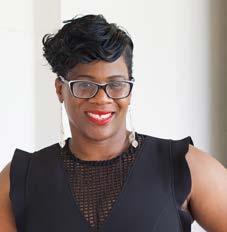
Karen Allen is a minister, personal development coach and activist who is challenging and changing the narrative for young people and Black men. Visit www.karenallen.info
30 Find us on X and Facebook: @KeepTheFaithmag
Exploring self-leadership through the life of Jesus
Self-leadership has become a modern buzzword. Andrea Graham shares insights on what we can learn from this unique form of leadership from the life of Jesus
In all the fast-paced rhythms of modern life, the concept of self-leadership often commands attention. We’re constantly bombarded with advice on how to lead ourselves better, how to achieve our goals, and how to live authentically. This is good, however, when all is said and done, there’s one timeless figure whose example speaks volumes about self-leadership – Jesus Christ.
I vividly recall the beginnings of my spiritual journey some 40 years ago, a time when I sought solace in my relationship with God, especially during moments of turmoil that demanded swift action. In those challenging times, I often found myself grappling with the question, “What would Jesus do?” Admittedly, the answer wasn’t always what I wanted to hear. There were instances when my ego yearned for validation, and my emotions threatened to overshadow reason. Yet, deep down, I understood that following Jesus’ example meant embracing a higher standard – one that required mastery over my impulses and emotions, rather than allowing them to dictate my actions.
At the heart of Jesus’ life lies a deep understanding of self-leadership, rooted in love, compassion, authenticity and wisdom. His life guides us towards a deeper understanding

of ourselves and our capacity for growth. So, let’s explore some of the principles of self-leadership that Jesus practised and what we can learn from them.
Clarity of Purpose: From the onset of His ministry, Jesus possessed unwavering clarity of purpose. He knew His mission and He pursued it with unswerving commitment. Jesus knew without doubt who He was; He knew that God had given everything into His hands and that He had come from God (John 13:3). We as individuals and organisations can learn from Jesus’ example by clarifying and staying in touch with our own purpose and aligning our actions with our deepest values and aspirations. When we have a clear sense of purpose, we’re better equipped to navigate life’s challenges and to stay focused on what truly matters.
Self-Reflection and Spiritual Practice: Jesus, a model of self-leadership, prioritised solitude for prayer (Mark 1:35, Matthew 14:13, John 6:15), gaining clarity and resilience. Planned solitude enhances self-awareness, which is crucial for success. Studies* show that only 10–15% possess true self-awareness, a key predictor of success. Like Jesus, individuals benefit from regular self-reflection, prayer, and meditation, deepening their connection to inner wisdom and to God.
Authenticity and Integrity: Throughout His life, Jesus embodied authenticity and integrity. He spoke truthfully, acted with integrity, and remained true to His principles, even in the face of adversity. He spoke with the Samaritan woman at the well (John 4:9) and He hung out with purpose at the tax collector’s house. Jesus’ actions were not influenced by the opinions, filters or narratives of others. He lived from His genuine, authentic self and acted from His own authority. Individuals can learn from Jesus’ example by cultivating veracity in their words and actions, and aligning their behaviour with their core values, like Jesus did. This can increase selfefficacy and inspire trust and confidence in those they lead.
Courage and Resilience: Jesus faced numerous challenges and trials throughout His earthly life. Despite the personal sacrifices
and risks involved, Jesus remained steadfast in His commitment to His mission, inspiring countless followers to rise up and embrace their own courage and resilience. We can draw inspiration from Jesus and cultivate courageous self-leadership by stepping out of our comfort zones, developing inner strength, maintaining a positive outlook in times of difficulty, and taking bold and decisive action in pursuit of our vision, even when confronted by uncertainty and adversity.
Inclusivity and Diversity: Jesus’ ministry was characterised by compassionate service to others. He welcomed individuals from diverse backgrounds into His circle, transcending social barriers and embracing diversity. He dined with the unpopular, healed the sick, and extended compassion – particularly to the marginalised. We can consciously mirror Jesus’ inclusivity by embracing diversity and developing environments where every individual feels valued, respected and empowered to contribute their unique perspectives and talents.
Forgiveness and Reconciliation: Jesus’ teachings on forgiveness and reconciliation offer profound insights into the transformative power of compassion and grace. He forgave those who wronged Him and extended a hand of reconciliation to all. Individuals can practise forgiveness and reconciliation by letting go of resentments, healing past wounds, and embracing a spirit of compassion towards themselves and others. Forgiveness frees us from the burdens of the past and opens the door to healing and reconciliation in our relationships.
As we reflect on Jesus’ life, may we be inspired to embrace our own journey of authentic self-leadership, guided by the principles of love, compassion and service to others. In doing so, we can create a world where authenticity, empathy and grace abound, transforming lives and communities for the better.
*https://Gitnux.org
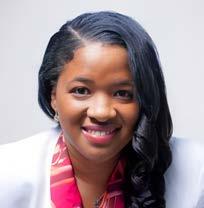
Andrea Graham is an Authentic Self-Leadership trainer and coach, and founder
Woman. Visit www.authenticwoman.co.uk
of Authentic
www.keepthefaith.co.uk 31
WILL THE REAL PROPHETS OF GOD PLEASE STAND UP!?
Marvin Sanguinetti gives insight into what the Bible says about prophets and prophecies, and how to assess whether prophetic declarations are true
The proliferation of prophets and public displays of prophetic ministries make it an inescapable encounter for 21st century Christians. There is no shortage of the giving and receiving of personal, esoteric and enigmatic claims, unveiling intricate information about what God is going to do for believers.
Some modern-day prophets often draw attention to themselves, rather than making prophecy and the use of the prophetic office a Christocentric experience. Jesus Christ must always be highlighted as Lord in any prophetic event, and participant observers should be left with no doubt that God has truly spoken (1 Corinthians 11:3). An anomaly of the average prophet is they are not accountable to any type of biblical governance and are usually pastored by only themselves. This is not the model shown in the New Testament!
Prophets and prophecies should be put under the biblical and theological microscope of solid hermeneutics and Christian ethics; their beliefs and behaviours must be scrutinised (1 John 4:1). Why? God often advised Israel to reject prophets and their prophecies: “Do not listen to the words of the prophets who prophesy to you, filling you with vain hopes. They speak visions of their own minds, not from the mouth of the Lord” (Jeremiah 23:16, ESV). Moreover, whether prophecies are foretelling or forthtelling, all must be examined by the wider Christian community, ‘…knowing this first, that no prophecy of Scripture is of any private interpretation…’ (2 Peter 1:20, NKJV).
We must vehemently challenge the notion that God gives direction for prophets and prophetesses to instruct congregants to “drink bleach substances”; “eat grass”; buy them second private jets; give all their social security benefits as offerings; or predict falsely who would win the USA election. To be clear – and I offer this as a disclaimer – I wholeheartedly and unequivocally affirm the prophetic office and gifts as integral to New Testament Christianity, so this brief commentary does not have an anti-prophetic modus operandi
To understand this phenomenon, we

should distinguish between the ‘office of the prophet’ and the ‘gift of prophecy’.
Those functioning in the prophetic office share divine directives by God to His people, and often speak on national and international issues of justice, equity, global spiritual decline, and calling nations back to God. (See Jeremiah 23:1-40, for example.)
Those with the gift of prophecy tend to address issues of personal concerns, including its operation in the local church (1 Corinthians 12-14). Having the God-given ability to discern or know intricate details about others is not itself prophecy but is prophetic in nature. These gifts are called ‘word of wisdom’ and ‘word of knowledge’ (1 Corinthians 12:8-11).
In today’s prophetic environment, we must exercise caution, because ‘soothsaying’ might be mistaken for biblical prophecy. Soothsayers will often reveal things about you that are true, but this is quickly followed by unbiblical requests for money and/or unethical favours (Acts 8:18-24). Moreover, one might not have the gift of prophecy, but God can still use them to prophesy (1 Samuel 10:10-13).
So how might we know who the real prophets are today? How might we tell which prophecies are true and which are blatantly false?
(1) What they say happens (Deuteronomy 18:20-22, Jeremiah 28:9).
(2) They never contradict what is written in Scripture (Isaiah 8:19-20, John 10:35, Matthew 5:18).
(3) Users of the office and gift demonstrate humility, maturity, and openness for their
predictions to be tested or judged (1 John 4:1, 1 Corinthians 14:29).
(4) Their message is balanced between encouragement and a call to repentance. Watch those prophets who lean to one side and neglect the other (Micah 2:1-11, Isaiah 40:1-2, Acts 21:10-13).
(5) Through the Holy Spirit, they will always point people to Jesus Christ and not to themselves (John 16:13).
Here are some other observations and bad practices we should look out for when deciding whether prophets of prophecies are true:
(a) Ask yourself whether the prophets or prophetesses attend church. Do they sit under or are submitted to other biblical leadership? (Ephesians 4:11)
(b) If these “men and women of God” invite you to ask them to prophesy, then it is hype and has no biblical foundation!
(c) True prophets and prophetesses do not trawl through social media or use details provided by stewards at the church doors as a basis for calling out an individual to make it seem like God revealed to them intricate details about that individual. This is deception! Let us use our gifts properly!

Dr Marvin Sanguinetti (PhD) is an academic theologian and university lecturer. He is author of the book Patterns of Christological Categorisation,and combines scholarly research with pastoral commitments. Email nlbc2007@aol.com
32 Find us on X and Facebook: @KeepTheFaithmag
INDEPENDENT OVERSIGHT GROUP
RECOMMENDS CoE ADDRESSES
LEGACY OF AFRICAN ENSLAVEMENT WITH £1BILLION FUND
Following its appointment last year by the Church Commissioners for England, an independent Oversight Group has released a report and recommendations into how the body should implement a new impact investment fund. The fund and grant-funding programme are being set up as part of the Church Commissioners’ journey to heal and repair the damage caused by the legacy of African chattel enslavement.
The recommendations include:
• recognition that £100m initially earmarked by the Church Commissioners is not enough, relative to the scale of the Church Commissioners’ endowment or of the moral sin and crime of African chattel enslavement, and that the organisation, in partnership with others, should target an initiative of £1bn and above
• that the timeline for the delivery of the fund should be accelerated and delivered faster than the nine years originally envisaged, and that it should aspire to start spending later in 2024
• a call for the Church of England to fully acknowledge and apologise for the harms caused by its historic denial that Black Africans are created in the image of God, for its deliberate actions to destroy diverse African religious belief systems, and to facilitate work that builds the spiritual connection of Africa and the African diaspora with the Gospel and the diverse spiritual practices of African forebears
The Oversight Group is recommending that the new impact investment fund be called the Fund for Healing, Repair and Justice, and that monies be used to invest in Black-led businesses focusing on education, economic empowerment, health outcomes and improving access to land and food, as well as provide grants to address these and other issues brought up for communities impacted by the legacies of African chattel enslavement.
The report says: “Crimes against humanity, rooted in African chattel enslavement, have caused damage so vast it will require patient effort spanning generations to address. But
The
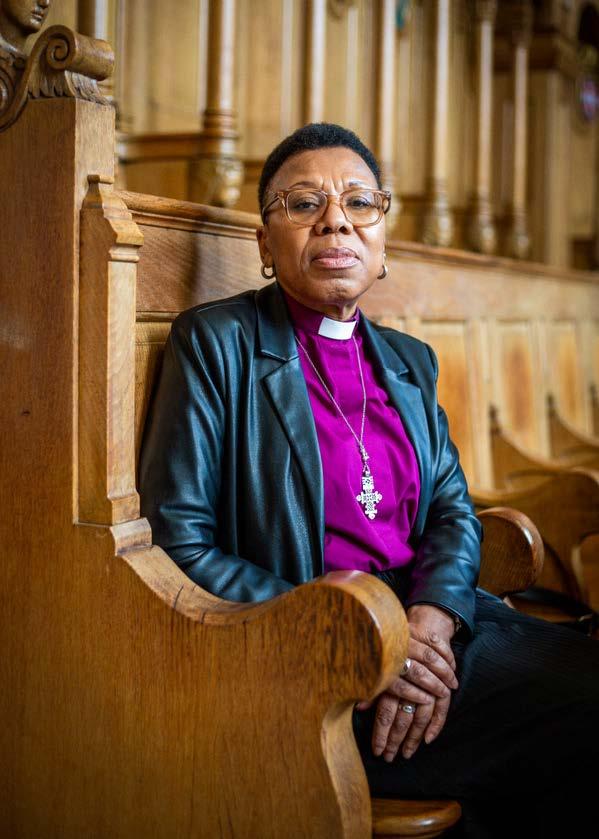
we can start today, in small and large ways.”
The report and recommendations were drafted by a Black-led Oversight Group. Members of the group included: Rt Rev Rosemarie Mallett, Bishop of Croydon who served as Chair; Vice-Chair, Geetha Tharmaratnam, Chief Impact Investment Officer of the WHO Foundation; Rev Canon Dr Michael A Clarke, Principal, Codrington College, Barbados; Esther Stanford-Xosei, legal specialist and activist; and Patrick Vernon OBE, campaigner and Equity System leader.
“This work and the Fund matter because the legacy of African enslavement continues to have a significant impact on communities today and inequalities persist till this day.”
The Rt Rev Dr Rosemarie Mallett, Bishop of Croydon, Chair of the Oversight Group said: “No amount of money can fully atone for or fully redress the centuries-long impact of African chattel enslavement, the effects of which are still felt around the world today. But implementing the recommendations will show the commitment of the Church Commissioners to supporting the process of healing, repair and justice for all those across
society impacted by the legacy of African chattel enslavement.”
The Oversight Group has also recommended that the programme should be ultimately owned and run by Black communities. The aspiration is for the impact investment and spending programme to start operating later in 2024.
Bishop Rosemarie continued: “This work and the Fund matter because the legacy of African enslavement continues to have a significant impact on communities today and inequalities persist till this day. The impact is measurable and apparent in everything - from pregnancy and childbirth outcomes to life chances at birth, physical and mental health, education, employment, income, property, and the criminal justice system. We hope this initiative is just the start and is a catalyst to encourage other institutions to investigate their past and make a better future for impacted communities.”
Another recommendation calls on the Church Commissioners and the Church of England to conduct further research into how else they were enriched by their involvement in African chattel enslavement.
The Church Commissioners, which manages the Church of England’s investment arm, has welcomed and accepted the report in full, acknowledging that while no amount of money can make up for the past, it had to be done. The Fund is an essential act for the Church of England on theological and humanitarian grounds. The setting up of the Fund is the most significant act of acknowledgement and repair yet made by any UK institution that was in receipt of funds earned through the enslavement of African people and their descendants.
“In seeking justice for all, we must continue to work together, remembering that all are created in the image of God,” said The Most Reverend Justin Welby, Archbishop of Canterbury. “The Oversight Group’s independent work with the Church Commissioners is the beginning of a multi-generational response to the appalling evil of Transatlantic chattel enslavement. My prayer is that this work will stimulate further visionary and practical co-created action.”
www.keepthefaith.co.uk 33
full report and recommendations can be viewed at www.hrjfund.org
Rt Rev Rosemarie Mallett
BLACK FAITH AND BLACK HEALTH: LESSONS FOR LENT AND LIFE
Dr Selina Stone explores Black Christian spirituality and shares why it’s important to be honest with God and the necessity to match faith with action

In my most recent book, Tarry Awhile: Wisdom from Black Spirituality for People of Faith, I do what is rarely done: I speak about how we as Black people encounter God. I wrote this as someone raised as Pentecostal, who has had many opportunities to experience God in different Christian traditions. For me, fasting was familiar – not fasting from social media or TV, but from food and drinks for six to 12 hours. Extended prayer meetings, tarrying services, prophecy and visions, speaking in tongues, morning devotions, and memorising Scripture were all familiar. But silent prayer, contemplation, written liturgies, and seasons like Lent were all unusual. And yet many of our early African church fathers and mothers developed and shaped many of these aspects of Christian spirituality too.
Whichever tradition or spiritual practices are familiar to you, one thing is sure: we have often inherited ideas about who God is and how to connect with Him, which do us a disservice as Black people.
Toxic theologies tell us our Blackness is opposed to Christianity – and we must choose between the two. We were told we must become like white Europeans in order to be saved. These are lies spread by white figures and traditions in the Church’s history which wanted to keep us mentally as well as physically chained. We were told our spirituality should focus on personal purity, rather than on how we treat our neighbour; that we should be concerned with going to heaven after we die and ignore evil and injustice in the here and now. This kind of dualistic faith does not reflect the holistic messages God gives to people throughout the Bible. Our connection with God is sacred and we must, like all people,
be mindful that the God we are worshipping is not an idol made by human hands.
Black spirituality – our capacity to experience the Divine – is a gift to us when it remains committed to truth-telling. This is a challenge when the truth is difficult to face. But since the Holy Spirit is known as “the Spirit of truth” (John 16:13) we should not be surprised that honesty should feature in our spirituality. This means telling the truth in our times of prayer alone and also together. It means bringing our personal concerns to God about our lives, the issues of poverty, violence among young people, and war, which shape our life together.

This can feel like a challenge if we imagine that God wants us to be good rather than truthful. In this scenario, when we come to God or church, we will spend our energy attempting to present ourselves in ways to gain acceptance. In our singing and prayers, testimonies and preaching, we try to perform perfectly and put on a brave face to impress God and others. And yet, in the Scriptures, we find moments of direct honesty with God and others. The psalms are full of moments of lament and sadness, where the psalmist cries to God: “Are You asleep?”, “Why have You let this happen?”, “Why don’t You help me?”
We can be assured that spiritual health requires telling God the truth about how we feel; He sees our hearts anyway. Emotions are an important signal to us that something is not right and needs to be addressed. We might address the issue through prayer or by talking to someone, but suppressing our feelings is not spiritually beneficial in the long run, and it does no good for our emotional health.
Our prayers might also be accompanied by action, and this is an important lesson for us who seek a future in which justice (righteousness) and peace are present in greater ways in our human experience. Some of the great heroes of Black faith have proven that ‘faith without works is dead’ (James 2:20). We learn this from grandparents, parents, good pastors and ancestors who paved the way for us. Praying one thing but doing another is a special kind of religious hypocrisy. We must tell the truth – confess – where our hearts are hardened, where we refuse to love as God does, and where we have chosen to prioritise personal gain ahead of God’s interests. God, who is full of mercy, will surely meet us with an open heart and give us the strength to do what we cannot in our own strength.
Lent is the perfect season to allow God space to work in us and to lead us ever more to become those whom God has called and chosen.
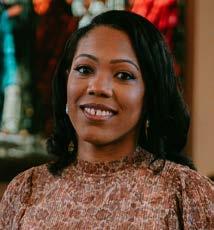
Dr Selina Stone is Postdoctoral Research Associate in Theological Education at Durham University and author of Tarry Awhile: Wisdom from Black Spirituality for People of Faith. Visit https://selinarstone.co.uk
34 Find us on X and Facebook: @KeepTheFaithmag
The call to Kingdom Building
Pastor Denis Wade writes that believers should be engaged in the God-given task of establishing God’s kingdom on earth, and how they can do so
In a world often marked by division, chaos and uncertainty, believers are called to be the beacon of hope, unity and purpose. At the heart of our faith lies the profound truth of ‘Kingdom Building’ – the divine mandate to actively participate in establishing God’s kingdom here on earth. As followers of Christ, it is not only our privilege but also our responsibility to engage in this noble endeavour. Let’s delve into why Kingdom Building matters; identify actions contrary to it; highlight positive examples; and explore practical steps for every believer to contribute to this transformative mission.
Why should believers be interested and involved in Kingdom Building?
The answer lies in our Lord’s teachings and example. Jesus Himself prayed: “Your kingdom come. Your will be done on earth as it is in heaven” (Matthew 6:10, NKJV). This prayer encapsulates our mandate to align our lives, actions and endeavours with God’s eternal purposes. Kingdom Building is not about constructing physical edifices or amassing earthly wealth; rather, it’s about advancing God’s reign of love, justice and righteousness in every sphere of society. As ambassadors of Christ, we are called to embody His kingdom values and to actively work towards its realisation.
However, there are actions that stand in direct opposition to Kingdom Building. Divisiveness, prejudice and apathy can run contrary to the unity and love central to God’s kingdom. When believers engage in gossip, slander or discrimination, they undermine the very essence of Kingdom Building.
In addition, prioritising personal agendas, wealth accumulation, or worldly success above serving others and advancing God’s purposes hinders the manifestation of His kingdom on earth.
Yet, amidst these challenges, there are inspiring examples of positive Kingdom Building. Consider the selfless acts of compassion and mercy demonstrated by individuals and organisations dedicated to alleviating poverty, fighting injustice, and promoting reconciliation. Think of churches actively engaging in community outreach, mentoring programmes, and social justice initiatives. These endeavours not only meet tangible needs but also bear witness to the transformative power of God’s love when embodied in action.
‘It’s a journey of faith, obedience, and sacrificial love, guided by the vision of God’s kingdom coming on earth as it is in heaven.’
What actions can believers take to aid Kingdom Building?
We must prioritise prayer as the foundation of our efforts. Prayer aligns our hearts with God’s will; empowers us with divine wisdom; and invites His presence into every aspect of our lives. We must also cultivate a spirit of humility, recognising that Kingdom Building is not about personal accolades but about glorifying God and serving others selflessly.
Furthermore, we can actively seek opportunities to serve and uplift those in need, whether through volunteering, advocacy, or financial support. By partnering with like-minded individuals and organisations, we can amplify our impact and bring about positive change in our communities and beyond. Let’s also engage in intentional discipleship, nurturing and equipping fellow believers to become passionate Kingdom Builders themselves.
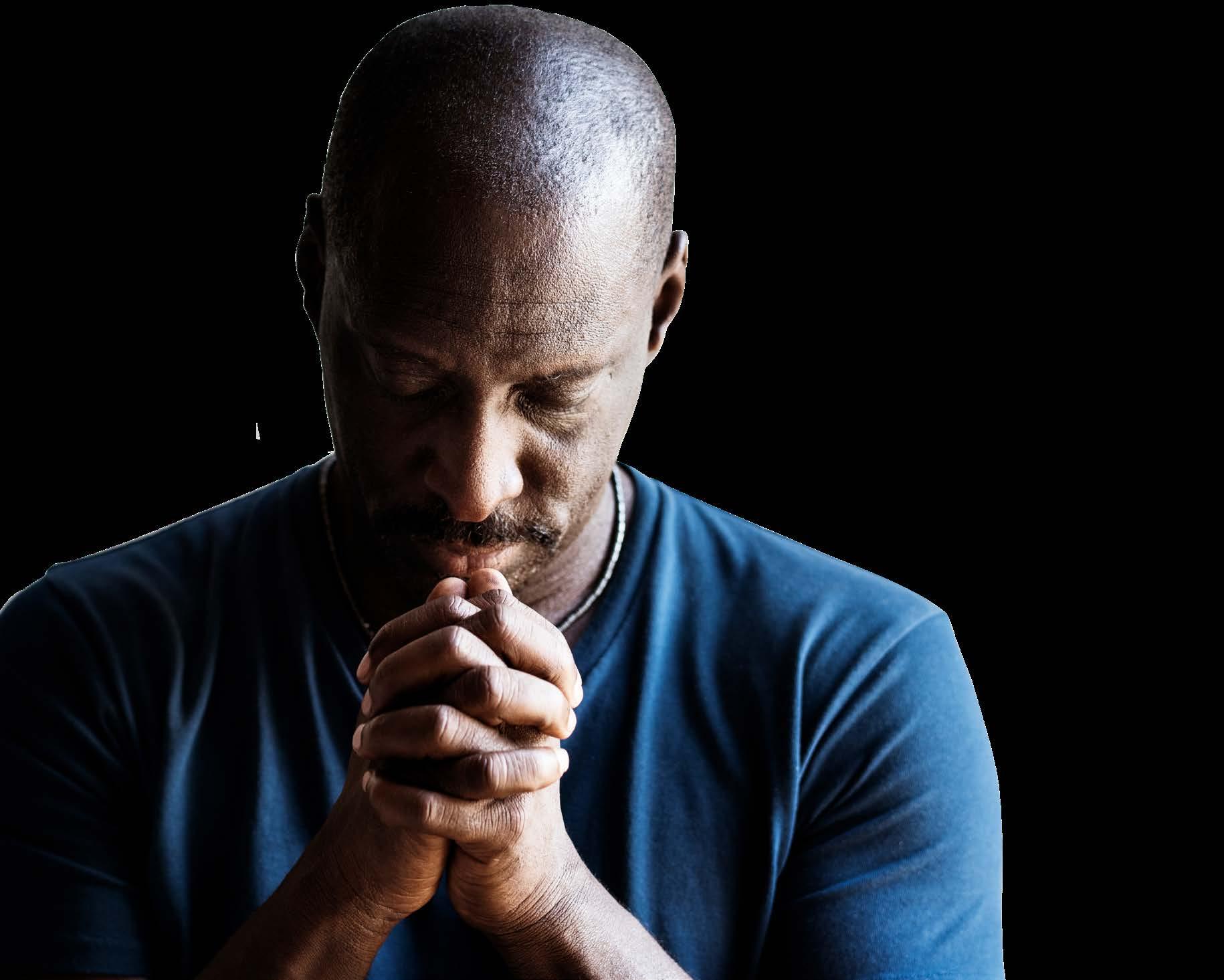
In conclusion, Kingdom Building is not merely a lofty ideal, but a sacred calling entrusted to every follower of Christ. It’s a journey of faith, obedience, and sacrificial love, guided by the vision of God’s kingdom coming on earth as it is in heaven. As we heed this divine mandate, let’s forsake all hindrances and press forward with steadfast resolve, knowing that our labour in the Lord is never in vain. As the body of Christ, let’s rise to the challenge and embrace our role as Kingdom Builders, who bring hope, healing and transformation to a world in desperate
Psalm 127:1 declares: ‘Unless the LORD builds the house, the builders labour in vain’ (NIV). Let us, therefore, commit our hearts, minds and hands to the noble task of Kingdom Building, trusting in God’s unfailing provision and guidance every step of the way.

www.micah.org.uk
Pastor Denis Wade is Senior Pastor at Micah Church London.
www.keepthefaith.co.uk 35
BROACHING MENTAL HEALTH CONVERSATIONS IN CHURCH: WHY AND HOW?

With increased recognition of the prevalence of mental health problems in society, Dr T Ayodele Ajayi argues that more churches need to start initiating public discussion of the topic

Black church communities can be uncomfortable around disclosures about mental health problems, and sometimes inadvertently make unhealthy assumptions that are damaging. There is, however, sound scriptural grounds to believe God cares about our souls – the seat of our emotions, will and intellect – as much as He does our spirits and bodies. Three John 2 alludes to God’s interest in our whole being: ‘I pray that you may enjoy good health and that all may go well with you, just as you are progressing spiritually’ (NIVUK).
The World Health Organization (WHO) states that one person out of every eight in the world is living with a mental health condition. If the church population is representative of our community, the chances are that mental health conditions are common. Some figures suggest that half of these conditions are already present by the time a person is 15 years old, and three quarters by their mid-20s.
More recently, an Office of Health Improvement and Disparities survey revealed that nearly half (49%) of adults and over half (52%) of Black adults in England said the COVID-19 pandemic had had a negative impact on their mental well-being.
This is why it is so important for churches, and church leaders in particular, to initiate open dialogue about emotional health.
Talk about mental health from the pulpit
On a personal note, as a psychiatrist who has the privilege of being a youth pastor with a growing social network teeming with Christian young adults and their parents, I know believers are keen to discuss mental health. There are unresolved issues of anxiety, depression,
identity, self-esteem, loneliness, sexuality, pornography, and social media dilemmas that they wish were openly addressed from the pulpit.
A common question I encounter is: “How and where does my Christian faith feature in my emotional health in the 21st century?”
So how might we as church leaders respond? Believers – young adults in particular – are looking for a collaborative approach from leadership. They want to be heard and involved in formulating strategies and solutions in tackling this issue. As a church leader, a good starting point might be to create a focus group in your congregation to brainstorm and highlight some of the challenges congregants are facing with mental health.
The pivotal point in the church I attend and serve in, came one Sunday, when the young adults decided to use their dedicated quarterly session to speak about mental health. Church leadership recognised the need to have another session, led by the young adults, which culminated in a formal church strategy to address mental health difficulties. Involving in-house mental health professionals is always beneficial. As a result of these conversations, we successfully arranged for our entire volunteer team and leadership team to receive safeguarding training and attend a full day of training dedicated to mental health awareness, delivered by myself and a couple of psychiatrist colleagues.
Incorporating personal experiences of mental health challenges and/or mental health self-care strategies in sermons can be a powerful way to normalise conversations and remove stigma. On occasions, I have shared
freely from the pulpit my journey of overcoming imposter syndrome. I also frequently talk about proven mental health tips, along with scripturally-sound and evidence-based thinking strategies I use to challenge toxic thinking in supporting my own mental health.
Be informed
Church leaders need to be better informed. Broaching the tricky issues of mental health is best when leaders are well-equipped, with a deeper understanding of the different types of mental health issues they may encounter in their congregation. The Royal College of Psychiatrists (rcpsych.ac.uk) and Mental Health Foundation (mentalhealthfoundation. org.uk) are credible information sources.
A supportive and non-judgemental approach – one that does not dismiss people with mental illness as sinful or weak-willed – is key. Encouraging listeners that obtaining professional help is not contrary to faith can be liberating. Alluding to Bible characters, such as David and Elijah, who clearly demonstrated mental health distress, can be a helpful means of normalising the dialogue.
God really does care about our well-being and we need to ensure that, for our congregants who are under increasing pressure in this area, we do not avoid the conversation. If there is somewhere these conversations can be held with empathy and compassion, in the solution-focused style it requires, the Church is perfectly placed.
36 Find us on X and Facebook: @KeepTheFaithmag
Tripart Care delivers evidenced-based, scripturally-sound mental health awareness training to church communities and Christian charities. Email: tripartcare@gmail.com
Honouring your God-given purpose through health and fitness
With Easter approaching, Olivia Williams shares the health lessons we can learn from Jesus’ life, death and resurrection and how to promote and maintain blood health so we can honour our God-given assignments
The best time of the year is upon us and, as we walk around the supermarkets, the shelves are filled to the brim with tempting sweet treats. Easter is far more than just indulging in sweet treats, however; it’s a time to remember and celebrate the life, death, burial and resurrection of our Lord Jesus Christ. It’s also a time when families often come together over food, which can pose its own challenges for those of us striving to maintain a healthy lifestyle.
As we reflect on the significance of Easter and the precious blood shed by Jesus, let’s also consider the importance of maintaining a healthy lifestyle, including practices that promote healthy blood.
Research shows there is a link between the power of healthy blood and its role in controlling various bodily functions. From regulating temperature and pH levels to transporting oxygen and nutrients, our blood plays a vital role in sustaining life and promoting overall well-being. There’s no wonder God said there is POWER in the blood of Jesus, which we have running through our veins!
But first, we must play our part in taking regular exercise, such as walking in the footsteps of Jesus, which can promote optimal blood flow throughout the body, delivering essential nutrients and oxygen to our cells while removing waste products.
Walking in His footsteps
Throughout much of His ministry, Jesus spent countless hours on foot, travelling from town to town, which would have been physically exhausting. This alone shows us the importance of movement and walking in our daily lives, reminding us of the vitality of movement. His stamina and endurance were definitely worthy to be praised!
Nourishing the body and soul: Eating how Jesus would eat
In addition to physical activity, consider how Jesus would have nourished His body to fulfil His earthly mission. It’s reasonable to assume that the foods He consumed not only sustained Him but also provided the strength and resilience needed to physically flip tables; carry His own cross; and then hang on it for hours. It’s hard to imagine Jesus having access to artificial
preservatives, processed sugars, and the excess calories we are presented with today. By following a diet rich in wholefoods, fruits, vegetables, and lean proteins, we can replicate the nourishing diet Jesus enjoyed.
Rest and spiritual renewal
Let’s not overlook the importance of rest and spiritual rejuvenation. Jesus often sought solace in prayer and communion with God the Father; we too can find strength and renewal in those moments of connection. As we navigate the busyness of Easter festivities, let’s make time for rest and spiritual reflection; it’s essential for our physical and emotional well-being.
By adopting Jesus’ practices into your daily routine, we can support healthy blood circulation; optimise metabolic function; and enhance vitality. Even small changes can lead to significant benefits for long-term health. If you are aiming to improve circulation and develop healthy blood flow, consider incorporating the following tips into your lifestyle.
Practical tips to promote optimal blood flow
1. When walking, do so with purpose: hold your head up to heaven, not down to the ground. It’s much harder to dwell on negative thoughts when you’re looking up! Movement not only supports circulation but also promotes mental well-being, helping you resist the temptation of indulging in sugary treats that can disrupt blood sugar levels.
2. Eat mindfully by choosing unprocessed foods that nourish both body and soul, copying the dietary choices of Jesus.
3. Partner with God by inviting Him into your health journey, making Him your accountability Partner for daily choices, and seeking His guidance and strength.
4. Reduce the risk of deep vein thrombosis (DVT) by maintaining movement and activity. Remember to honour Jesus’ sacrifice by caring for your body.
5. Consume a balanced diet, rich in nutrients like iron, vitamin B12 and folate, which can support the production of healthy blood cells. Hydration is also crucial for maintaining adequate blood volume and viscosity.
6. Incorporate hibiscus tea into your diet to stimulate nitric oxide production. This will help promote arterial health and vitality, facilitating easier oxygen delivery throughout the body. This can also help alleviate strain on the heart and cardiovascular system, leading to lower blood pressure and increased energy levels.
7. Benefit by adding Ceylon cinnamon to your meals or beverages; it can be beneficial for regulating blood sugar levels and enhancing insulin sensitivity. So, whether you’re managing diabetes or simply aiming for better metabolic health, incorporating Ceylon cinnamon can offer significant benefits.
As a reminder of the importance of honouring our bodies as temples of the Holy Spirit, by prioritising health and wellness this Easter season, we can honour the sacrifice of Jesus while embracing the abundant life He offers us.


www.keepthefaith.co.uk 37
Williams
of ScriptFit, a qualified health and fitness coach, personal trainer, and public speaker. Visit www.scriptfit.com
Olivia
is founder
Overcome stress with greater self-awareness and self-care
Shirley Anstis explains why it’s important to reduce stress in our lives and provides strategies we can use
Far too many of us carry a heavy stress load all the time, so it takes very little to bring us to a point of feeling overwhelmed. Too many of us are also living in a state of constant anxiety or worry.
The life of animals is very different. Every day they have to find food and shelter to survive or have to evade being eaten by a bigger and more powerful predator. Once they escape from the lion or tiger they can rest and recover until the next chase.
Sadly, for us humans, we tend to remain in this heightened state of fear and worry, even after we’ve survived or overcome a challenge. We ruminate on ‘What if?’ and ‘What might happen?’ which eats into the time we could be spending, building supportive relationships or looking after our health and well-being.
Humans are designed to face short-term stressors. Our ancestors had solvable and urgent survival goals – to build a shelter, find food and water, and connect with their family/ community. When they failed to achieve these then they didn’t survive for very long.
Modern life has evolved beyond this simplistic model and, with modern technology,
we believe ourselves to be so much more sophisticated than our ancestors.
We are connected to everyone online – and sometimes disconnected from the people in our lives and the communities where we live. Loneliness is prevalent amongst all age groups. We invite stress when we compare ourselves to people we see on social media, even though we have nothing in common with them.
Every day we are bombarded with news of suffering, divisions and greed in different parts of the world, and increasingly closer to home. This feeling of powerlessness can add to our feelings of stress.
We have access to vast amounts of data, yet we make poor decisions.
For example, we know water is good for the body, yet that is often the last thing we choose to drink. We know that healthy food keeps us well, yet we make unhealthy choices regularly. There have been an increasing number of studies linking diet to gut health to mental health, which means what we eat can affect our mood and thinking ability.
The truth is, stress can be debilitating or it can be a motivator by helping us to do better. The first step is to recognise who or what is causing you stress and begin to take steps to reduce its impact. At the same time, build your capabilities so that you can tap into your resilience when facing a stressful situation.
Recognise that some things are within your power to control and those things you can begin to resolve. Other stressors may be within your power to influence, and you will need to work collaboratively with others to find a solution. And finally, there are stressful things in the world that we do not have the power to solve, yet we can choose to be a positive light in our corner of the world.
So, what can you do to tackle your level of stress?
Pay attention to your body and whenever you feel stressed. Who or what increases stress in your life?
Once you become aware, you can then try to preempt these influences and become proactive instead of reactive.
For example, could you introduce clearer boundaries for yourself and others, so that you agree to demands that are realistic for you?
Are there people in your life whom you love and care for, but feel stressed in their presence? Is there anything you can do about that?
As well as noticing what increases stress in your life, you can also review which practices reduce the experience of stress for you.
Here are a few ideas to improve your resilience and reduce the impact of stress on your life:
• Take regular exercise
• Spend more time in nature
• Take action to enjoy better quality sleep
• Listen to music

• Develop more authentic friendships
• Have a creative outlet, such as baking, journalling, knitting, colouring or painting
• Be more present and do less multitasking
• Undertake therapy to work through past or present pain and trauma
• Try mindfulness, meditation, prayer – or do all of them
• Work on your mindset
• Find a purpose bigger than yourself that nudges you forward
Hopefully, by becoming more aware of your stressors and increasing your ability to be resilient, you will find it less difficult to cope with the many surprises life throws your way. The pace of change will continue, so it’s about finding solid ground to stand on.
Continue to develop good habits and begin to trust yourself. Let’s truly embody our individuality and do less of the comparing and competing.
Wishing you less stress and more peace.

Shirley Anstis is a counsellor, author, life coach and workshop facilitator. Find her books on Amazon and connect with her on social media.
38 Find us on X and Facebook: @KeepTheFaithmag
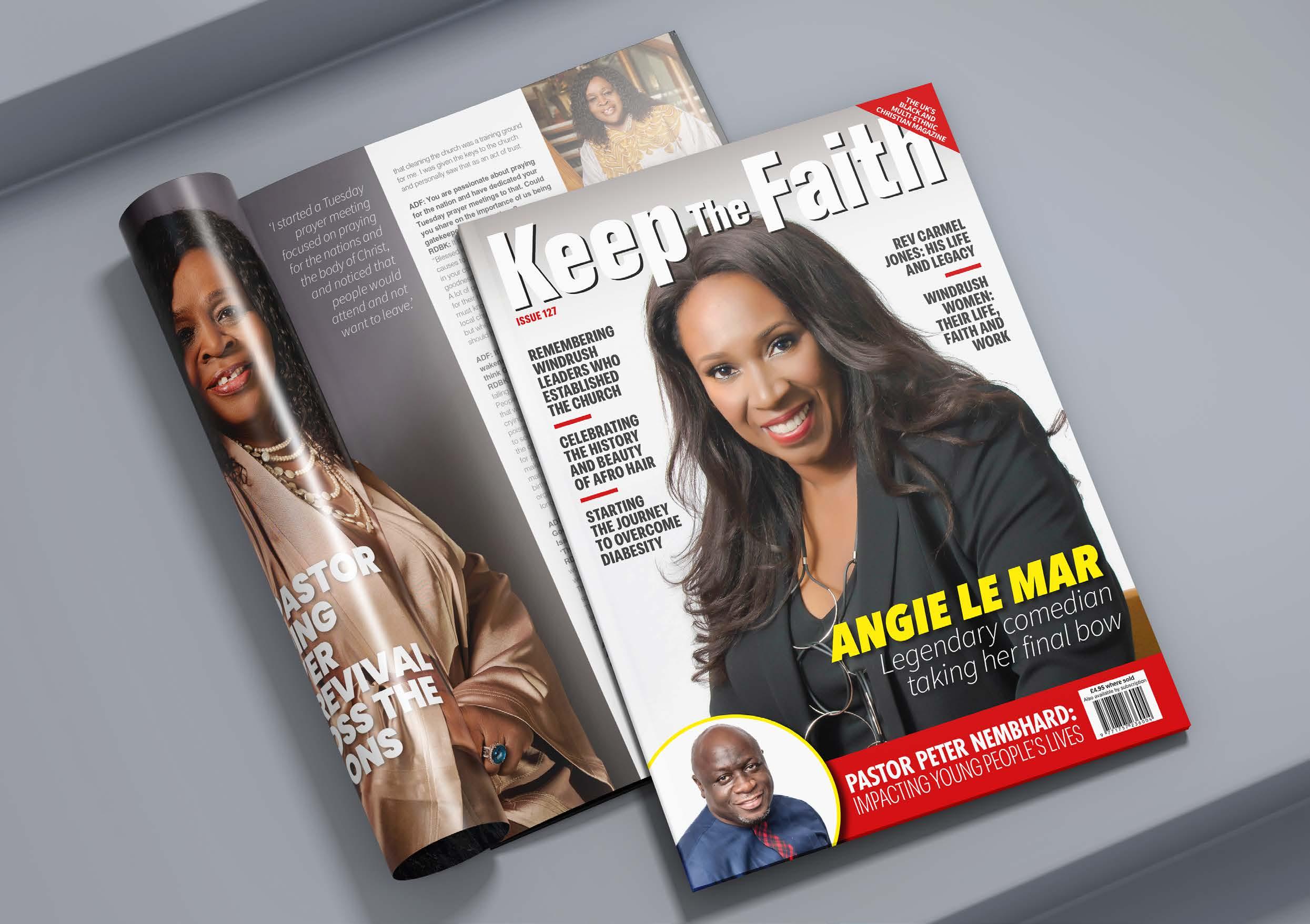
“It’s always a great
and has been a tremendous inspiration to the Church, especially to the African and Caribbean community.”
REV LES ISAAC OBE
SUBSCRIBE TO KEEP THE FAITH And get it delivered directly to your home, church or office Just £25 for a year’s subscription for an individual Bulk orders cost: £35 for 30 magazines or £60 for 60 magazines
read
Email finance@keepthefaith.co.uk for payment details www.keepthefaith.co.uk
WOMEN, LET’S WORK TOGETHER
Victoria Lawrence shares why it’s good for Christian women to collaborate and work jointly in building God’s kingdom
When I thought about this article topic, the first thing that came to mind was 1 Corinthians 12:1–26!
I am sure most people have heard this Scripture preached in various contexts over the years. We cannot overemphasise the importance of working together through partnership or collaboration in this season, where many people are struggling to meet the demands around them – whether as a church, charity, ministry or business. I particularly believe women are helpers by nature, design and DNA. However, due to negative experiences, many find it difficult to work with other people. And some, due to personal insecurities, don’t like to work with other women. However, when women work together and support each other, the results can be outstanding.
In 1 Corinthians 12, the apostle Paul wrote to the church in Corinth after hearing about the things they were doing which did not reflect the gospel message he had shared with them. There were reports of all kinds of immoral behaviour, and Paul addressed the different issues in this chapter. He highlights that church members needed each other and reminded them that God had created every part of the body for specific purposes, and there was no need to compete or compare themselves with each other – two major reasons why people (especially women) don’t like to work together.
If we recognise that every woman in the church is useful, has significance, and is working to fulfil God’s call upon their lives, we will celebrate each other and utilise each other’s gifts more!
I personally see collaboration as a stewardship issue. If we are to be good stewards of God’s grace and resources, we must collaborate. No one has been created to work alone, and no one is expected to live ‘independent’ lives, as we often see today. I mean, why do we need three food banks in the same area?!!!
I have so many positive examples of women collaborating, and the unquestionable effect it had on the lives of those they were trying to impact.
One example of collaborative working occurred with the charity I founded, called The Father’s Joy (TFJ). It’s a charity dedicated to empowering women through providing support, counselling, prayers, and hosting conferences with a focus on supporting families raising children with special needs. TFJ worked alongside Tamar Family Support Unit (TFSU) – a charity that provides tailored support for women and men who are living in abusive relationships, and Safe Haven – a non-profit organisation that provides low-cost counselling services.
TFJ desired to provide practical support to women but had no money to pay for the counselling they needed. A REGAIN course was written by members of the organisation to create a safe place that offers a therapeutic platform for women to share their stories. TFSU sourced the funding to sponsor women to attend the programme and to pay for low-cost counselling for those who needed it, which was delivered by Safe Haven counselling centres. This collaboration worked so well that, to date, around 150 women have gone through the programme and received counselling.
Below are some things that can make working with other women successful:
1. Work with like-minded people who have clearly defined objectives
2. Involve all parties, and jointly agree how the project will be implemented
3. Acknowledge everyone’s contribution
4. Be open and transparent about progress
5. Be accountable to one another
6. Handle conflict immediately and with grace
7. Look after other people’s interest and not just your own
8. Define what partnership or collaboration mean – don’t assume everyone understands what it means to you
9. Celebrate success and learn from mistakes
10. Allow the Holy Spirit to be the centrality of every decision and action!
11. Pray without ceasing
12. Be honest about how you feel –especially if it looks like things are not working out
When we think about being a good steward of what God has given to us, working together must be a priority. The solution to your assignment might just be in another woman’s hands!
Remember, as a woman, you are a helper by design, helper by nature, and helper by DNA. Do nothing out of selfish ambition and be intentional about working with others –even if you don’t need help, someone else might just need yours. Let’s do better and be kingdom-minded.
The world is our oyster!
Your sister Victoria Lawrence is founder of The Father’s Joy, a charity that provides training, support and education to people in Britain and Africa. Visit www.thefathersjoy.org.uk


40
BEFRIENDING YOUNG PEOPLE AND FAMILIES
With social services under strain, and a growing mental health crisis, Joy Roxborough shares how churches can fill the gap to support young people and families

At the risk of sounding cynical, as I contemplate British society today I observe it is largely broken. It seems that major chunks of the workforce are engaged in strike action or in recurring irresolvable wage negotiations. Then when they are at work, people are for the most part engrossed in soul-destroying circuits on hamster wheels. This does not bode well for people who use services. Ask yourself, for instance, how well did you feel listened to the last time you managed to get a GP appointment? Was it a rushed experience, or did you feel there was sufficient time allocated to deal adequately with your concern?
In the meantime, more people – especially Black people – are slipping further into poverty. According to the Joseph Rowntree Foundation, nearly half of households in the UK, headed by someone from a Black African background (42%), were in poverty in 2019/20 and 2021/22.
The situation is no less harrowing for young people in education and early career positions, and the gravity of this is reflected in soaring figures of those affected by poor mental health. The NHS has reported supporting more than 700,000 children and young people with their mental health in 2023.
Further, in a survey of 1,203 children and young people in 2023, NHS England reported that 20.3% of eight- to 16-year-olds; 23.3% of 17- to 19-year-olds; and 21.7% of 20- to 25-year-olds had a probable mental disorder. A likely repercussion of these statistics is a social care system that is bursting at the seams with referrals, and an ever-increasing burden on social workers to put out fires. Indeed, social workers are one of the chief group of workers wearing themselves out on
the relentless hamster wheels.
As a trained social worker, I am particularly concerned about the brokenness of that system – both for workers as well as for service users and, in this instance, young people. As the burden on services, especially for children, is increasing, qualifying thresholds are also being raised. This means that even fewer children and young people are being given the much-needed assistance they and their families need. As social workers leave the profession in droves, it can be easy to see that the long-term repercussions for society in general can be devastating.
As Christians, is there anything the Church can do about all this? I would say a resounding “Yes!”
‘Having such mentors could also serve to inspire young people to alternative lifestyle choices, rather than being left to purely succumb to peer influences.’
In the first instance, individuals could take it upon themselves to draw alongside families and/or specific young people in their local churches and offer themselves as informal mentors, based on friendship. This could go a long way to affording young people the luxury of having people they can look up to if and when they need to talk through issues. Having such mentors could also serve to inspire young people to alternative lifestyle choices, rather than being left to purely succumb to peer influences.
I think such interventions are particularly timely, because our collective increased engagement is social media which has left many of us connected electronically but
isolated in reality. According to Campaign to End Loneliness, loneliness is higher among the 16- to 24-year-old age group, with other caveats also contributing to the problem.
In the second instance, as Christians, we could also take it upon ourselves to befriend families and young people in our neighbourhoods, since some of them are not churchgoers. How many of us know our neighbours or know their children?
Now, I understand the possible sensitivities that can be involved in reaching out to others in today’s society. Personally, I always cringe a little whenever my neighbours’ young children rush up to hug me. I do my best to be accommodating, but I am aware our relationships are not sufficiently developed to encompass hugs. Still, parents have never complained or objected, and at this juncture I try to just be a good neighbour – and they do likewise.
At any rate, relationships are key to our existence. I believe it is only through building good relationships – whatever that looks like in specific situations – that we can serve those around us. So, in the third instance, we could invite young people and their parents around for a cup of tea, a snack or dinner, depending on our circumstances, as a way of building whole-family relationships.
You may be surprised to see how appreciative young people are when someone reaches out to them.

www.keepthefaith.co.uk 41
Joy Roxborough is a creative industry professional, writer and entrepreneur. Email joyroxborough@yahoo.com
LOVING AND SUPPORTING OTHERS THROUGH DIFFICULT TIMES
Esther
Kuku shares how the resurrection power of Jesus that raised Him from the dead is transformative and can help us support others going through the challenges of life

Easter is a date in the calendar; however, the resurrection power of Jesus can impact our daily lives all year round. There is no power in the fact that Jesus died on the cross. It is the fact that He conquered death – providing hope and a direct relationship with God for all who believe in Him, and paving the way for us to overcome every difficulty we face.
Resurrection power is transformational for those who are going through really challenging times.
Have you ever tried to comfort someone going through a tough time – such as the death of a loved one, a terminal illness or the pain of divorce? Our natural inclination is to throw our arms around them to try and fix things. Or to try and identify the source of their pain and try to rationalise it to connect with them. In our desire to help we could be misrepresenting God.
People who are hurting will not be healed by tea and sympathy, although of course there is a place for that. However, in 2 Corinthians 1:3-7, it says:
‘Praise be to the God and Father of our Lord Jesus Christ, the Father of compassion and the God of all comfort, who comforts us in all our troubles, so we can comfort those in any trouble with the comfort we ourselves receive from God. For just as we share abundantly in the sufferings of Christ, so also our comfort abounds through Christ. If we are distressed, it is for your comfort and salvation; if we are comforted, it is for your comfort, which produces in you patient endurance of the same sufferings we suffer. And our hope for you is firm, because we
know that just as you share in our sufferings, so also you share in our comfort.’
The word for ‘all comfort’ in this passage is the Greek word ‘paraklesis.’ It means much more than tea and sympathy; it’s about helping and making strong. The amount of repetition of the word ‘comfort’ in these verses demands our attention: nine times, with slight variation for context. Paul is really trying to land his point.
I love this part: exactly what you receive from God, give to someone else. In other words, please don’t give a second-rate type of compassion or comfort to others, but the same level of intensity as you have received from God. Mercy, compassion and forgiveness shouldn’t be diluted or polluted in any way.
‘...once we’ve been in trouble ourselves, it changes how we relate to others; we see ourselves in their situation.’
If you’ve never been in trouble this is going to be very difficult to do. I am always wary of people who present as perfect. Have you ever seen a young newly married couple sheepishly declare how they never argue or fight? Our revelation of God’s nature and character is aligned to our experience of Him.
If you have never been a recipient of God’s healing power, or never been transformed by the depth of His compassion and comfort in life’s darkest moments, then you may end up offering well-meaning periphery comfort to others that is letter and not Spirit. But once we’ve been in trouble ourselves, it changes
how we relate to others; we see ourselves in their situation. And loving those who are suffering becomes a personal gift that is effortless for us to give.

Jesus’ death and resurrection on the cross are a reminder that in the end we win. However, we will not proceed painlessly into a victorious future. We will be tested and tried, but His Word confirms we will not be put to shame. His perfect love that casts out fear will give us capacity to move forward into the abundant life we have been promised.
Let’s open our hearts and be bold in our endeavours to bring the healing power of Jesus to those we meet. Let’s be undiluted and honest in our approach. Let’s activate the resurrection power of God in the lives of those who are experiencing difficult times – speaking the work of faith over their lives because it is the Word of God that sets us free.

42 Find us on X and Facebook: @KeepTheFaithmag
This is an excerpt from the BRF Lent book, Loving My Neighbour: A Lenten Journey – a co-authored collection of daily Bible readings and reflections from Ash Wednesday to Easter Day.
SECURING YOUR MARRIAGE AGAINST DIVORCE
Pastor Timothy Oladipo shares six ways couples can divorce-proof their marriage
‘Let no one separate what God has joined together’ (Mark 10:9).
The above verse of Scripture isn’t only referring to third parties, but also to the spouses involved in the union of the marriage. Our marriages are constantly in motion, with various factors keeping them busy. However, for our marriages to truly flourish, we must invest in them beyond the routine tasks of daily life.
Let’s delve into this empowering topic of safeguarding our marriages against divorce. In a world where divorce rates are skyrocketing, it is crucial to remember that with God’s guidance we can create a marriage that can weather any storm.
By following the principles below, we can build a strong foundation that will protect, strengthen and divorce-proof our marriages.
1. PRIORITISE YOUR RELATIONSHIP WITH GOD
The cornerstone of a solid marriage lies in our individual relationships with the Lord. By seeking Him daily, we invite His wisdom, love and grace into our lives, which will overflow into our marriage. The closer we get to God, the better spouses we become. Let’s make God the centre of our union!
2. LOVE UNCONDITIONALLY
Love is a commandment from God that requires our commitment. As followers of Christ, we are called to love one another unconditionally, just as He loves us. We must strive to show grace, forgiveness and kindness to each other, even during challenging times. Remember, love covers a multitude of sins! While love covers a multitude of sins, it will also always address those sins with love (1 Peter 4:8).
3. MAINTAIN OPEN AND HONEST COMMUNICATION
Communication is the key to a thriving marriage, so take the time to actively listen to your partner’s thoughts, feelings and concerns. True communication isn’t just waiting for your turn to speak (!) but creating an environment of mutual trust and understanding. Be open, honest and respectful in your conversations, and together, you can overcome any obstacle!
4. MAKE INTIMACY A PRIORITY
Intimacy goes beyond physical connection; it encompasses emotional, spiritual and intellectual bonds. Invest time in nurturing these aspects of your relationship too. Pray together, share dreams and aspirations together, and create moments of joy and laughter. Allow your love to grow deeper every day. Agreement between the two of you will stem from intimacy of mind and spirit. For the two to walk together, there ought to be agreement (see Amos 3:3).
Ecclesiastes 4:9–10 (NKJV) puts it this way: ‘Two are better than one, because they have a good reward for their labour. For if they fall, one will lift up his companion. But woe to him who is alone when he falls, for he has no one to help him up.’ The place of intimacy is the place of oneness of the mind, will, emotion and spirit.
5. SEEK GUIDANCE AND SUPPORT
Recognise that no one is perfect, and no marriage is perfect either. James 3:2 (ESV) says: ‘For we all stumble in many ways. And if anyone does not stumble in what he says, he is a perfect man, able also to bridle his whole body.’ If there cannot be a perfect man,
surely there cannot be a perfect marriage. But we can experience daily growth in maturity as we surrender to our perfect God and to His perfect Word.
Don’t hesitate to seek guidance from trustworthy, godly individuals, pastors or counsellors who can provide biblical wisdom and support during challenging times. Seeking help is a sign of strength, not weakness! If there are serious issues of serial physical, psychological, emotional or financial abuse or concerns, consider seeking professional help ASAP.
‘...by practising daily forgiveness and embracing these principles, we can build a marriage that is divorce-proof and filled with love, joy and commitment.’
6. LEARN THE ART OF FORGIVENESS
Remember that no marriage is without its flaws, but, with God’s grace, we can overcome any trial that comes our way. Embrace the biblical principles of agapé love, forgiveness and open communication. Forgiveness plays a vital role in cultivating a resilient marriage and nurturing a lifelong bond. It allows us to release past transgressions and heal old wounds, fostering an intimate connection that endures.
Discovering the truth about marriage takes time and effort. It is not always a smooth journey filled with constant affection and bliss. Instead, it can be challenging, testing our patience, and causing emotional wounds. However, by practising daily forgiveness and embracing these principles, we can build a marriage that is divorce-proof and filled with love, joy and lasting commitment.
By following these tips, let’s ensure our marriages remain strong, fulfilled and fortified against external infiltration and temptations.
Remain envisioned.


www.keepthefaith.co.uk 43
Timothy Oladipo is Pastor at King’s Chapel, London. He is an avid blogger and teacher with a passion for equipping people to maximise their gifts and calling. Connect with him on Facebook at Time In
The Word with PT and on Instagram and Threads @ptofficial
INTIMATE SCENES FOR THE CHRISTIAN WRITER
Vanessa Grossett provides tips and advice for Christian writers who want to include intimate scenes in their fiction or nonfiction writing


Whether you are writing fiction or nonfiction, writing intimate scenes can come as an uneasy task for the Christian writer.
Writers don’t want to upset their audience, as there are readers who still think it is wrong for the writer to add these scenes into a story that is Christ-centred, as they think it will make the book erotic.
Because of this hindrance – and to please their readers – writers don’t add intimate scenes, much to their frustration. If you’re a Christian writer and you want to add a love scene for your fiction, or a deep personal experience for your nonfiction, here are some tips to help you along.
Description
When adding an intimate moment between couples it doesn’t need to be graphic; you can make it just as pure, romantic and passionate.
Here is an example of an intimate scene by one of my authors, Parker J. Cole. The extract is taken from A Marquis to Protect the Governess, published by Mills and Boon/Harlequin Historical.
‘André’s arms were her anchor as she rode out whatever this ultimate pleasure was that had taken her captive, until the feeling eventually stopped, and she collapsed into his arms, her knees unable to hold her up. Tender kisses now swept her face, as she tried to catch her breath.’
The extract is intimate, leading up to the act, but it’s romantic, not graphic, and full of passion. Description is important, and there are many ways you can write a love scene using pleasant wording. It is best to research the wording that is used for love
scenes that are not erotic.
If you prefer not to describe the full act, you can end the scene like this: ‘That night the two became one’, or ‘Their bodies entwined’. Here, the reader gets an idea of what is happening – without the narrative going into full detail.
With nonfiction, if you’re going into deeply personal details, especially if there is sexual abuse involved, you don’t need to outline everything that happened.
With a nonfiction book I recently edited that involved sexual abuse, the writer wrote: ‘I was touched in private places. I didn’t understand what was happening.’ This was acceptable, as it gave the reader an understanding of what was taking place. They then went on to describe in great detail the act, which wasn’t necessary. Remember, with nonfiction – especially if it’s a heavy story – you need to write just enough for the reader to get the idea.
Relevance
Are the love scenes necessary for the story? This is a very important consideration, especially when you are writing your memoir. How much do you really want to reveal to the readers? Remember, these are readers you may not have connected with yet. The first impression they will form about you will be based on your biography.
If you’re in a relationship, will it have implications to that current relationship? How would your current partner feel, reading intimate moments between you and another person they don’t know?
There are other descriptive words you could use to convey the idea of intimacy to your readers, such as: ‘We became
close, beyond a friendship level.’ In fiction you could write: ‘That night was like no other; their eyes were locked onto each other, and they knew this night would change the dynamics of their relationship.’
If you feel you really must describe an intimate scene, because you believe it will be more effective, then follow the guidelines above on how to make it pleasurable and not graphic.
‘Even the Bible talks about intimacy – but God’s way.’
Informing your readers
If you want to write love scenes as a Christian writer, I personally don’t believe your creative talent should be held back, especially when it can be written in a pure, loving, romantic way, or in a way that full details don’t need to be revealed. Even the Bible talks about intimacy – but God’s way.
However, there could be that niggling feeling in your mind concerning your readers. What will they think? Will you have any readers left after the book comes out?
Well, during pre-promotion you can inform your readers that your book has some ‘spice’. They will get the idea, and if they don’t want to read it, they can read your other books. Thank them as well for their support and let them know that you felt the ‘spicy’ scenes were necessary for the story.
Happy writing, Vanessa www.theauthorscareagency.co.uk
44 Find us on X and Facebook: @KeepTheFaithmag
Real Life Real Solutions

Read authentic stories about the highs and lows of the single life.
Gain valuable insights on how to successfully navigate being Christian and single. Learn tips on how to live a fulfilling single life and find live if that's what you want.
THIS BOOK WOULD MAKE A PERFECT GIFT! Visit www.amazon.co.uk to buy Available in paperback and e-book format BLACK CHRISTIAN AND SINGLE
SPECIAL OFFER £10
THE PROS AND CONS OF PROTECTIVE HAIRSTYLES
Protective hairstyles, such as wigs, weaves, cornrows and twists, are popular amongst people with afro hair. These styles give people an opportunity to not wear their hair loose, to keep it tucked away and unmanipulated which, in some instances, enables it to grow freely.
Low manipulation is a crucial aspect of caring for afro curly hair. This hair type is unique and requires gentle handling to maintain its health and to promote growth. Here are the reasons why low manipulation is beneficial for afro curly hair:

LESSENS BREAKAGE: Afro curly hair is prone to breakage due to its delicate nature. Excessive manipulation, such as frequent combing, brushing or styling, can lead to hair breakage. By reducing manipulation, you minimise the risk of breakage and help your hair retain its length.
RETAINS MOISTURE: Afro curly hair tends to be dry, because the natural oils produced by the scalp have a harder time travelling down the hair shaft. Frequent manipulation can further strip the hair of its moisture, leading to dryness and frizz. Low manipulation, on the other hand, allows the hair to retain its natural oils, keeping it moisturised and healthy.
REDUCES TENSION AND DAMAGE: Tight hairstyles, such as braids or ponytails, can cause tension and stress on the hair follicles, leading to traction alopecia or hair loss. Low manipulation styles, such as twist-outs or braid-outs, distribute the tension more evenly and reduce the risk of damage.
PROMOTES HAIR GROWTH: By reducing manipulation, you create an environment that promotes hair growth. Since afro curly hair is fragile, it’s essential to minimise any stress or trauma that could hinder its growth potential.
Low-manipulation styles protect the hair and allow it to thrive.
Before wearing a protective hairstyle, hair will need a moisture treatment because these styles can be quite drying to your hair. It is also worth noting there are advantages and disadvantages to wearing protective styles.
WIGS
Advantages:
Versatility – Wigs allow you to change your hairstyle quickly and easily.
Protection – Wearing a wig can protect your natural hair from damage caused by heat styling, chemicals, and environmental factors. Low maintenance – Wigs require minimal daily maintenance compared to other styling options.
Disadvantages:
Comfort – Some people find wigs uncomfortable to wear for extended periods.
Cost – High-quality wigs can be quite expensive. Breathability – Wearing a wig can make your scalp feel hot and sweaty, so having the right cap is key.
WEAVES
Advantages:
Length and volume – Weaves can instantly add length and volume to your natural hair. Protective styling – Weaves can protect your natural hair by allowing it to rest and grow. Styling options – You can style and manipulate weaves in various ways.
Disadvantages:
Tension and weight – Improper installation or excessive weight can cause tension and damage to your natural hair.
Maintenance – Weaves require regular maintenance, such as washing, conditioning and styling.
Potential for damage – If not installed or removed correctly, weaves can cause breakage and hair loss, so always use a hairdresser who understands about tension.
CORNROWS
Advantages:
Low maintenance – Cornrows require minimal daily care.
Versatility – Cornrows can be styled in various patterns and designs.
Protection – Cornrows can protect your

natural hair by keeping it tucked away and minimising manipulation.
Disadvantages:
Tension – Tight cornrows can cause discomfort and potentially lead to hair breakage. The hair line can be affected if the tension is too tight. Scalp irritation – Some people may experience scalp irritation or itchiness after getting cornrows. Limited styling options – Once your hair is cornrowed, you have limited flexibility in changing your hairstyle.
TWISTS
Advantages:
Low manipulation – Twists allow your natural hair to rest and grow, without excessive manipulation.
Versatility – Twists can be styled in various ways, such as updos or loose styles. Protection – Twists can protect your ends and minimise breakage.
Disadvantages:
Time-consuming – Twists can take a long time to install, especially if you have long or thick hair.
Frizz – Twists can become frizzy over time, requiring regular maintenance to keep them neat.
Tension – If twists are installed too tightly, they can cause scalp tension and discomfort.
It’s important to note that the advantages and disadvantages may vary depending on factors such as hair type, maintenance routine, and the skill of the blessed hair stylist.
Wig Technician Course
Whether you are a beginner or are experienced in creating wigs, gain greater expertise in wig construction, styling and maintenance on my wig technician training course. Contact info@WigTechnician.com for more information.
Braiding Camp
Enhance your styling skills! Join The Braid Camp Course, where you’ll learn how to do cornrows, braids, twists and more. For more details contact afrohairgrowthchallenge@yahoo.com
45 Find us on X and Facebook: @KeepTheFaithmag
Verona White explains the advantages and disadvantages of wearing protective hairstyles
INTRODUCING HIGHGATE HOUSE: A PREMIER DESTINATION FOR CHRISTIAN GATHERINGS
In an exciting announcement, Christian Conference Trust proudly presents the opening of Highgate House, a distinguished Christian conference centre, nestled in the beautiful landscapes of rural Northamptonshire. Welcoming its first groups in June this year, the venue offers an exclusive haven for Christian communities seeking a space to experience residential ministry.
Once a historic coaching inn dating back to 1663, Highgate House has undergone a remarkable transformation, now offering a sanctuary for Christian groups to benefit from residential ministry.
Developing relationships with God
Embracing the belief that we are designed for connection with both God and one another, residential ministry is a great way to foster these special relationships. Going away together with your church fellowship or Christian organisation creates time and opportunity to grow in faith, reconnect with God, and encourage one another as believers in prayer, teaching and worship.
Quality facilities at affordable prices
At the heart of Highgate House’s appeal lies its commitment to providing top-tier amenities at accessible rates. Proudly standing alongside well-known, High Leigh in Hertfordshire and The Hayes in Derbyshire, Highgate House

upholds the Trust’s legacy of delivering top-quality facilities for Christian groups at affordable prices.
Featuring 17 meeting spaces accommodating up to 200 guests, 81 luxurious bedrooms, a gym, and a stunning lounge, Highgate House caters to the ever-growing demand fro Christian groups for affordable, high-quality conferencing.
Guests at the venue are treated to a hot breakfast, tasty lunch, afternoon tea with cake and a delicious evening meal. Seamless connectivity is ensured with complimentary high-speed Wi-Fi, while unlimited freshly ground coffee and tea keeps everyone buzzing throughout the day!
Operating on a ‘not-for-profit’ ethos, Christian Conference Trust offers rates averaging half that of commercial venues*, ensuring inclusivity and accessibility for all.
Growing to meet the demand for more Christian venues
With a rich history spanning over a century and having served more than 8 million believers since its inception in 1910, Christian Conference Trust remains steadfast in its mission to nurture Christian ministry. The addition of Highgate House marks a pivotal milestone in this journey, offering a distinctive and affordable space for groups to strengthen their faith.
As demand for venues surges, following

the resounding success of High Leigh and The Hayes since their reopening in 2021, the Trust has meticulously scoured the country for the perfect location to meet this growing need. Situated conveniently off the M1 motorway, Highgate House’s central location positions it ideally to serve as many Christian groups as possible.
Welcoming groups of all sizes
The new venue is only available to Christian groups, and any denomination, charity or organisation can book a residential retreat for their congregation, team members, volunteers, leaders and workers for groups of between 12 and 189.
For larger groups, it’s also possible to secure exclusive use of the venue just for your church or Christian organisation, making it ideal for church weekends and training events.
Don’t delay, book today!
Highgate House is now accepting bookings, and groups are encouraged to secure their space as soon as possible. With wide-open availability, churches and Christian organisations can lock in their preferred dates for this year and 2025.
For booking inquiries and more information, please visit cct.org.uk

saving, based on analysis of the per-person midweek price quoted by 22 commercial conferencing venues located within a 90-minute drive of CCT venues on a like-for-like basis. Based on Christian group pricing for events taking place in Spring 2024. Source: CRNet Venuefinder.
*Average





*Average saving based on analysis of the per-person midweek price quoted by 22 commercial conferencing venues located within a 90-minute drive of CCT venues on a like-for-like basis. Based on Christian group pricing for events taking place in Spring 2024. Source: CRNet Venuefinder. MIC DROP! No hidden charges, just one, all-inclusive price that includes everything you will need during your event. Find out more or to book visit: cct.org.uk NEW FOR 2024! THE HAYES Swanwick, Derbyshire HIGH LEIGH Hoddesdon, Hertfordshire HIGHGATE HOUSE Creaton, Northamptonshire OUR CONFERENCE CENTRES ARE HALF THE PRICE OF COMMERCIAL VENUES * ...

























 FRED
FRED






























































































































